
Want to create or adapt books like this? Learn more about how Pressbooks supports open publishing practices.
Chapter 14. Back to the Big Picture: Globalization and Trends

14.1 Globalization and the Tourism Industry

In today’s integrated and interdependent world, multiple forces represent both opportunities and threats to tourism. This chapter explores the topic of globalization and how it relates to tourism, and then examines trends (political, economic, social, technological, legal and environmental influences — PESTLE ). The chapter closes with a reflection on what all this means for tourism in British Columbia.
Depending on the focus of the discussion, globalization can be defined in several ways. One broad definition is:
A complex web of social processes that intensify and expand worldwide economic, cultural, political and technological exchanges and connections (Campbell, MacKinnon, & Stevens, 2011, p. 4).
Globalization can also be simply described as the movement of goods, ideas, values, and people around the world. The term was first used in the early 1950s to recognize the increasing interdependence of economies and societies around the world. Globalization, however, has existed for centuries by way of evolving trade routes, including the slave trade, colonization, and immigration.
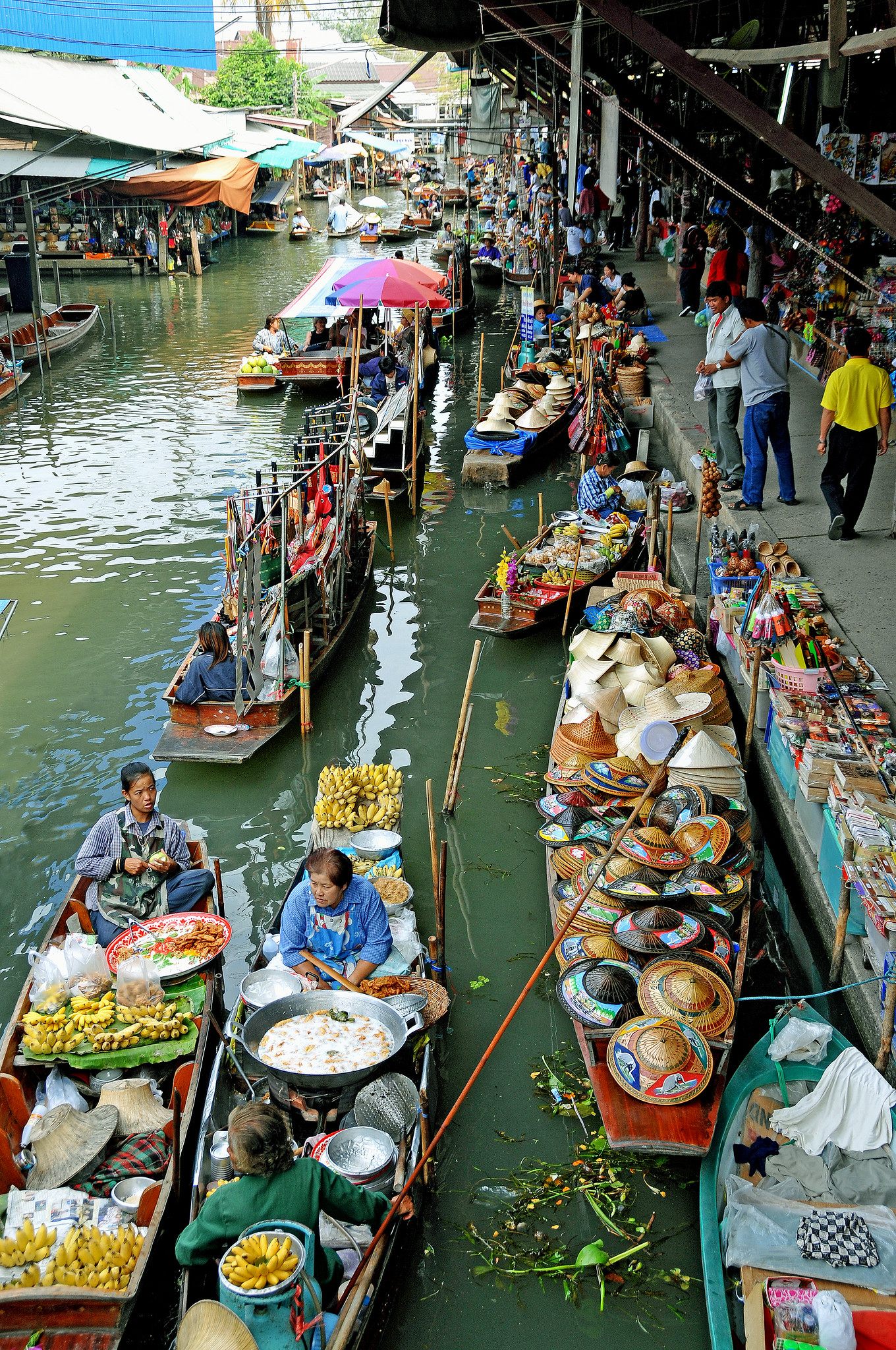
Today, we are divided into separate countries, each looking out for its own national self-interest, with all its flaws and benefits. At the same time, other entities such as multinational corporations cross borders, which leads to global economic and political integration. Many benefits can result from global integration and interdependence, but we also need to heed its negative effects.
We can look at the relationship between globalization and tourism in several ways. For the purposes of this chapter, we will consider the impact of tourism and travel on globalization, and the impact of globalization on tourism. But first, let’s keep in mind why it is important for a local tour operator, general manager, or tourism business owner to think about globalization. More importantly, let’s consider where we should be looking to understand globalization and future trends. The rest of this chapter will address these topics.
The Impact of Globalization on Tourism
We can assess the impact of globalization on tourism from a number of perspectives. Here, we will discuss five examples: global mobility and ease of travel; population and demographic trends; terrorism, safety, and security; increased awareness of new destinations; and poverty.
Global Mobility and Ease of Travel
The advances made in transportation that have enabled global mobility are particularly significant. Modern aircraft, cruise ships, trains, and other modes of transport allow people to move quickly and relatively cheaply. Aircraft such as the Boeing 787 Dreamliner have opened new routes by creating an aircraft capable of flying “long haul” distances with a smaller passenger load. Fast trains, road systems, and even city bike rental programs enable people to move, tour, and explore the world. These changes have allowed more people to travel more often in less time.

Ease of travel has also helped to overcome the barriers of fear, frustration, and expense. For example, an international banking system allows access to money almost anywhere in the world. Multinational corporations, which provide flights, local transportation, and accommodation and food, have allowed for “one-stop shopping” for travel bookings. Mobile devices have also changed the nature of travel in terms of what travellers do and how they interact with a destination, making it easier to, for example, select a restaurant, navigate a big city, or translate a foreign language. As a result, there are fewer unexplored places in the world anymore.
The ease of travel has also facilitated the rapid global transfer of viruses. While spread owing to global air travel has occurred in other outbreaks such as SARS in 2003, the COVID-19 pandemic of 2020 illustrates the new challenges faced by the air transportation system. The willingness for quick action to contain future viruses means that airlines will need to be ready, willing and able to terminate travel routes upon any notice of health concerns.
Population and Demographic Trends
According to the United Nations Department of Economic and Social Affairs (2019a), the world population reached 7.7 billion in 2019 and is projected to exceed 9.7 billion by 2050. The population continues to increase, but not uniformly across the world. The overall global population rate of increase is slowing but birth and death rates are vastly different between developed and developing nations (UNDESA, 2019b). For instance, among developed countries, there is a growing percentage of people over 65 that will reach 25% by 2050 (UNDESA 2019a). With a smaller percentage engaged in the workforce, there will be implications on social and health services. Globally, the people under the age of 24 will decline in every region of the world. Among developing countries, half the global growth between 2019 and 2050 will come from Sub-Saharan Africa. For instance, Nigeria will double its population to 4 million by 2050 (UNDESA 2019b). The two most populous countries, India and China will also experience different trajectories; India will surpass China as the most populous country in the world by 2027 (UNDESA 2019b).
Other critical population trends affecting global development and tourism include the following (UNDESA 2019c; UNDESA 2019d):
- By 2100, approximately 40% of the world’s total population is expected to be African. While birth rates are tending to fall around the world, they are still higher across Africa than in most other parts of the globe. This could result in a youth dividend or further exacerbate problems on the African continent.
- More people are migrating than ever before, with 272 million recent migrants in 2019 alone compared with about 175 million in 2000. The top five destinations are the United States, Germany, the Russian Federation, Saudi Arabia, and the United Kingdom.
- Some 55% of the global population is urban, and the urbanization trend is expected to continue as people search for more jobs, more social and health services, and more activities. Not everyone benefits equally though, as housing and other infrastructure struggles to keep up with the growing urban population.
To keep up with all of these changes in demographics, destinations will need to provide products and services to suit the older, culturally diverse, multi-generational travellers as well as the adventurous youth. Additionally, hiring and retaining staff will require a rethinking of human resource policies and procedures, compensation, and other aspects for the changing population of employees.
Terrorism, Safety, and Security
Terrorist attacks and political unrest globally have certainly disrupted tourism, but not halted it. The areas most affected, of course, are those where unrest has occurred and has been the focus of extensive media attention. A global terrorism index produced by the Institute of Economics and Peace (2019) shows that while fatalities from terrorism have declined since 2015, the number of affected countries, 71, is the highest since 2002. Of note is the rise in far-right terrorism in western countries, with an increase of 320% over the past five years (p. 4).
The 2020 global pandemic for COVID-19 resulted in a massive and sudden transformation in the relationship between safety and travel. Starting in early March, 2020, the Canadian government moved toward closing the borders and curtailing outbound and inbound travel. These efforts were to, at first, contain the spread of the virus internationally, evolving toward a national quarantine to “flatten the curve” of number of people effected. Clearly, the pandemic has changed how we travel, and how we define safety of travel in a global setting.
While safety and security may not be the driving reasons for tourists selecting a particular destination, certainly a lack of safety and security often eliminates a location from travellers’ “wish lists.” Safety and security for travellers is becoming more important as countries move to protect their citizens. Government agencies around the world produce advisories and warnings for their citizens to stay away from dangerous locations and political unrest.
Take a Closer Look: Travel Advisories
Travel advisories serve as warning systems for people from specific countries to avoid particular destinations because of actual or potential threats to citizens. To learn more about advisories for specific countries, see the Canadian government web page at Canada’s Travel Advisories and compare them to Australia’s Travel Advisories , the United States’ Travel Advisories , and the United Kingdom’s Travel Advisories .
The focus on safety and security has had several impacts on travellers. Most notably, security at most airports has been increased in an effort to protect people and planes (Flight Global, 2015). Screening procedures can take longer and some items are no longer allowed on board. Other security requirements, such as showing passports and providing fingerprints, have been implemented for entry into some countries. While all acts of terrorism cannot be stopped, the tourism industry is attempting to provide as much safety and security as it can.
Increased Awareness of New Destinations
Another influence of globalization on tourism is a greater awareness of destinations and the range of leisure activities, sites, and cultures to visit around the world. Generating knowledge of a destination is obviously a key first step in marketing a destination, and this is achieved by way of travel shows, films, social media, and other forms of communication. The competition to attract visitors is fierce considering the sheer number of places available for travel; it can be easy to get lost in the noise of global competition.

Globalization has contributed to increased demand for goods and services and overall economic growth, with the result of global poverty having decreased over the years. However, at the same time, the gap between the richest and poorest has expanded. A significant portion of the world’s population is simply unable to participate in, or benefit from, tourism. The economic gains from a tourism economy in a developing country such as Honduras versus a developed country such as Canada is unequal. Simply put, not everyone has the same opportunities to profit. Environmental costs are also unevenly distributed in the world, with poor countries lacking the resources to adapt to impacts (such as droughts, increased disease, soil erosion), and shouldering the majority of the repercussions of phenomena such as global warming.
Another way to analyze the interplay between tourism and globalization is to consider the reverse view: the impact of tourism on globalization.
Impact of Tourism on Globalization
In this section, we will look at tourism as a global force — for peace, for cultural homogenization, for commodifying cultures, and for shaping the way we see the world.
Tourism as a Force for Peace
In the 1980s, a popular hypothesis was that tourism supported global peace by allowing travellers to learn about other cultures and meet people from other nations, as well as offering benefits accrued from international business. Peace is an obvious requirement for tourism if the industry is to be robust and sustainable. However, to date, there is little empirical evidence to support the claim that tourism fosters peace, however attractive as the idea may be. However, there is a growing body of research on the relationship between tourism, social justice, and human security, both negative and positive. Clearly, the simple presence of tourism does not immediately equate to societal benefit. Careful planning and a focus on policies supporting community well-being and sustainability are required.
The United Nations Sustainable Development Goals (SDGs) are important for tourism organizations to take into account. They help in guiding the evolution of tourism and travel toward a more positive and hopeful form of tourism as well as enabling a more sustainable, and peaceful, future.
Tourism as Cultural Homogenizer

Nevertheless, tourism does offer the opportunity to teach people about how to respect other cultures. Whereas some argue that globalization has a homogenizing effect on cultures, as Western values are spread through music, fashion, film, and food, rendering one culture indistinguishable from the next. But tourism cannot be viewed as the only means of transmitting western values.
Some beliefs and values, such as embracing equality, inclusion, and diversity, or the need to protect children from harm, should be shared around the world. In the context of tourism and travel, these values are significant. For instance, companies need to ensure that their human resource practices are consistent and fair throughout the world. Exploiting children for sex is illegal, punishable in both the country visited and the home country of the tourist; some airlines and hotels are actively involved in supporting the prohibition of child sex tourism. Travellers are expected not to deface heritage sites or take rare or endangered natural or cultural objects as souvenirs. Such regulations speak to the universality of certain values and beliefs, which we all are required to follow as global citizens.
Tourism as Commodifier

Another possible influence of tourism on globalization is the process of cultural commodification , which refers to the drive toward putting a monetary value on every aspect of culture, from buying a sculpture stolen from an ancient temple, to buying endangered objects such as ivory and coral, or buying a T-shirt that desecrates a symbol or object important to another culture. This trend results in the degradation or devaluing of cultural values and beliefs and was explored in Chapter 12 on Indigenous tourism.
As one of the world’s largest industries, tourism impacts local, regional, and global economies. Resorts dot coastlines around the world and offer a welcome respite from colder climates to anyone wishing to experience a tropical beach, as well as the local culture and nature. While benefit comes to the community in the form of jobs, more often than not the larger share of the wealth leaks offshore. In response, local entrepreneurs and aid organizations have helped with initiatives that embrace local ownership in order for the wealth generated from tourism to stay in country . Community-based tourism, responsible tourism, and social entrepreneurship all aim to bring greater benefit to local communities.
Tourism As a World View
Tourism is also a major influence in how we see and understand the world. Keith Hollinshead (2019) refers to it as tourism world-making , or the way in which a place or culture is marketed and/or presented to tourists. Unlike local people, travellers experience a place for a few days, with limited knowledge of the culture and local way of life. Some visitors rely on available tourist information to make the most of the experience and to see the highlights. Others turn away and attempt to “go local” in search of the authentic experience with the belief that they can truly understand a place by avoiding the tourist sites.

If tourists stay in their resort in a given country, their only interaction with a local culture may be the staff at the hotel. In many cases, visitors experience a place in a fragmented, disconnected way, seeing only a portion of a place. How much can be gained from such short and transient experiences? This debate leads to one of the often discussed, if not hotly debated, topics in tourism, that of authenticity of experience . In 1976, Dean MacCannell released his book The Tourist: A New Theory of the Leisure Class , in which he argued that even those events that seem to be authentic are in some way staged for the visitor.
Take a Closer Look: Cannibal Tours
In 1988, Dean O’Rourke shot a documentary profiling the experiences of jet-set travellers as they encountered locals in Papua New Guinea. The movie highlights the challenges that happen when visitors meet with “the other,” in that their expectations shape the behaviours of the locals. The movie features interviews with the locals as well as tourists. Watch the movie Cannibal Tours .
As a quick review before leaving here, drag the following factors to the correct description between globalization and tourism.
Now let’s look at some predominant trends in the industry.
An acronym for political, economic, social, technological, legal and environmental forces.
The movement of goods, ideas, values, and people around the world.
Making the same, i.e., the effect of tourism helping to spread Western values, rendering one culture indistinguishable from the next.
The drive toward putting a monetary value on aspects of a culture.
A term to describe using a local-ownership approach in order for the wealth generated from tourism to stay in a destination.
The way in which a place or culture is marketed and/or presented to tourists.
A hot topic in tourism that started with MacCannell in 1976 and continues to today; discussion of the extent to which experiences are staged for visitors.
Introduction to Tourism and Hospitality in BC - 2nd Edition Copyright © 2015, 2020, 2021 by Morgan Westcott and Wendy Anderson, Eds is licensed under a Creative Commons Attribution 4.0 International License , except where otherwise noted.
Share This Book
The effect of globalization on the tourism industry
Lena Linetti

Globalization and tourism are very dependent on each other. Today, thanks to globalization, people from across the world can easily exchange ideas and values whether they are political, environmental, technological, cultural, or economic settings. Consequently, this exchange has enabled the circulation of massive knowledge amongst the people of the world. People now understand each other better regardless of language, religion, or cultural differences and this has boosted tourism in a huge way.
One of the greatest barriers to the growth of the global tourism industry is political misunderstanding amongst different territories. And apparently, the same barrier has hindered globalization for over five decades now. But the good thing is that citizens from different countries are now exiting from their racial, tribal, religious, and political cocoons and embracing humanity. Many people are continuously realizing the great potential that lies in pulling together as people instead of antagonizing each other for imaginary conflicts. This trend has really helped both globalization and tourism.
In the realization of how powerful globalization is, nearly all countries on the planet are working hard to open up their borders for international investors. This has even forced neighboring countries to form trade blocs in order to enhance the free flow of goods and ideas within the region. The social media, on the other hand, has made it easy for aspiring travelers and business people to acquire information about different destinations and markets, consequently aiding the growth of globalization and the tourism industries. What’s more, affordable accommodation options such as vacation rentals have greatly increased across the world in order to accommodate the growing number of international visitors.
An Example of How Globalization Has Affected Tourism
Years back, East Asia was a sleeping economic giant. This has since changed due to globalization. Economies such as China, Japan, and India have grown tremendously in the recent past. These countries boast of a huge working population, particularly in the tech industry. In fact, companies in the traditional economic powerhouses are now outsourcing cheap labor to Asia and some parts of Africa. This has led to a continuous flow of money between citizens of different continents.
The growth of ICT in East Asia, on the other hand, has made it easier and cheaper to do business in the region. Many countries in the west are even competing to make China and Malaysia their close trading allies. They are finding ways of doing business without being physical with the help of different PEO-s (Professional Employer Organization). A good PEO example would be NH Global Partners . This has led to the creation of more jobs and growth of income in the East, not forgetting a growing upper-middle class in the region. Hospitals, road networks, and other economic drivers are also improving by the day.
According to research , demographic shifts due to globalization greatly affect tourism as an industry. The higher the employment rate and average income index a country have, the higher the number of travelers it produces. Today, different tourists attraction sites across the world are seeing more Chinese, Japanese, and other Asian tourists more than ever before. Why so? Because they now have the resources to travel, plus the fact that most Asian employees get many paid leaves nowadays.
4 Other Ways that Globalization Has Affected the Tourism Industry
Positive effects
1. Increased global mobility
Globalization has made it easier to travel the world. There are cheaper flights, interpreting companies are opening offices everywhere, there are international credit card companies across the world, and changing currencies is easier and more convenient than during any other time in history. This has aided tourism in a big way.
2. Free flow of information
Globalization has made it easy for travel enthusiasts to discover hidden travel destinations and to learn about different cultures before making their traveling decisions. There are more senior citizens in the developed countries today and due to the increased circulation of information, this non-working population is making more international trips than ever before.
Negative effects
1. Terrorism
Increased globalization comes with some negatives too. Terror groups such as Boko Haram, ISIS, and Al-Qaeda are able to send their terror messages easily and faster thanks to social media. Deaths resulting from terrorism are also on the rise because globalization has made it easier for weapons and criminals to move freely between different countries. This hurts tourism in a big way.
2. Culture erosion
The richness of a given culture determines whether or not visitors will be attracted to it. But with globalization sweeping across continents, many people are losing their cultures and adapting to foreign traditions. This is killing the tourism sector.

- school Campus Bookshelves
- menu_book Bookshelves
- perm_media Learning Objects
- login Login
- how_to_reg Request Instructor Account
- hub Instructor Commons
- Download Page (PDF)
- Download Full Book (PDF)
- Periodic Table
- Physics Constants
- Scientific Calculator
- Reference & Cite
- Tools expand_more
- Readability
selected template will load here
This action is not available.

14.1: Globalization and the Tourism Industry
- Last updated
- Save as PDF
- Page ID 9381

- Morgan Westcott & Wendy Anderson et al.

In today’s integrated and interdependent world, multiple forces represent both opportunities and threats to tourism. This chapter explores the topic of globalization and how it relates to tourism, and then examines trends (political, economic, social, technological, legal and environmental influences — PESTLE). The chapter closes with a reflection on what all this means for tourism in British Columbia.
Depending on the focus of the discussion, globalization can be defined in several ways. One broad definition is:
A complex web of social processes that intensify and expand worldwide economic, cultural, political and technological exchanges and connections (Campbell, MacKinnon, & Stevens, 2011, p. 4).
Globalization can also be simply described as the movement of goods, ideas, values, and people around the world. The term was first used in the early 1950s to recognize the increasing interdependence of economies and societies around the world. Globalization, however, has existed for centuries by way of evolving trade routes, including the slave trade, colonization, and immigration.
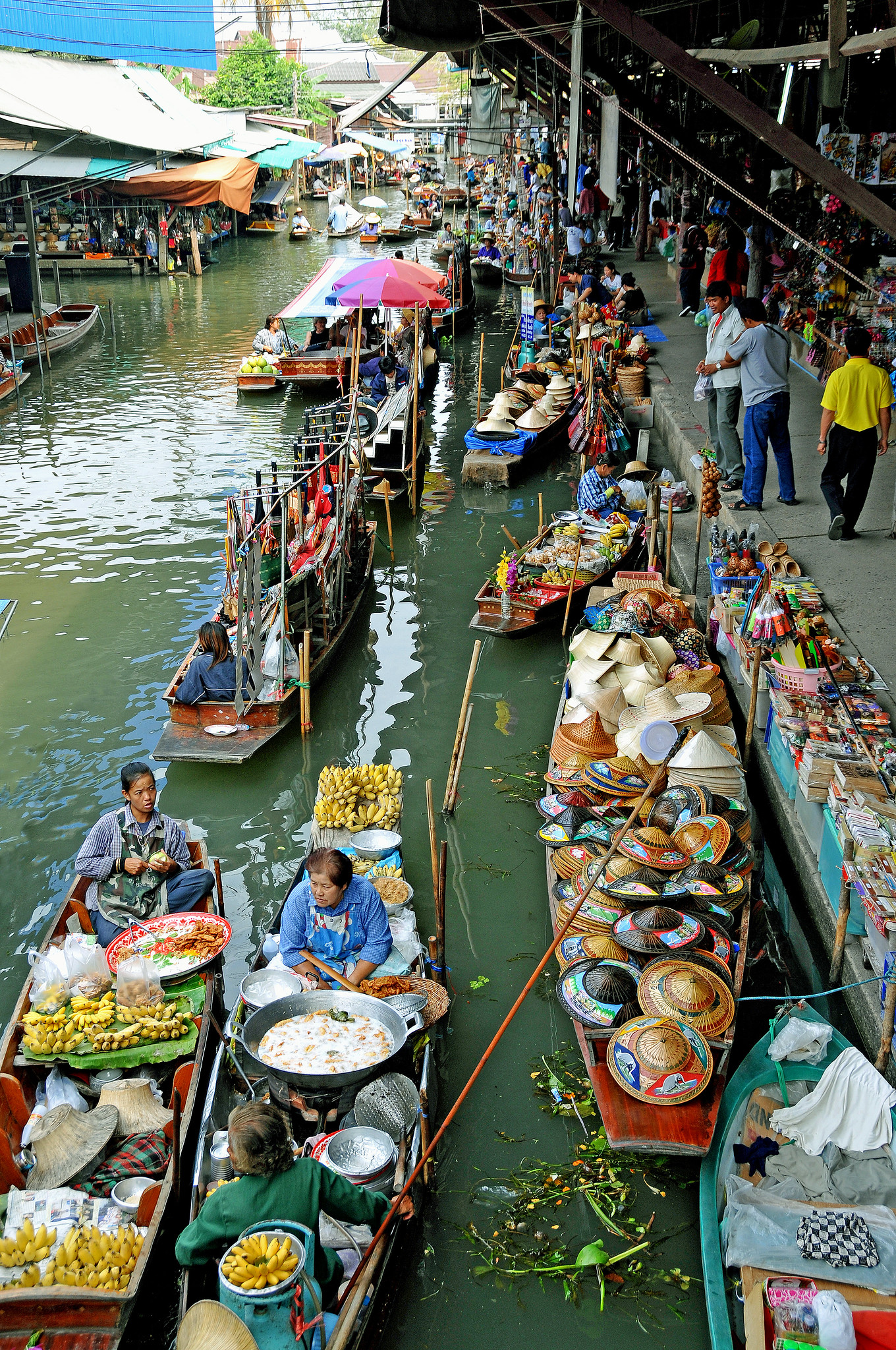
Today, we are divided into separate countries, each looking out for its own national self-interest, with all its flaws and benefits. At the same time, other entities such as multinational corporations cross borders, which leads to global economic and political integration. Many benefits can result from global integration and interdependence, but we also need to heed its negative effects.
We can look at the relationship between globalization and tourism in several ways. For the purposes of this chapter, we will consider the impact of tourism and travel on globalization, and the impact of globalization on tourism. But first, let’s keep in mind why it is important for a local tour operator, general manager, or tourism business owner to think about globalization. More importantly, let’s consider where we should be looking to understand globalization and future trends. The rest of this chapter will address these topics.
The Impact of Globalization on Tourism
We can assess the impact of globalization on tourism from a number of perspectives. Here, we will discuss five examples: global mobility and ease of travel; population and demographic trends; terrorism, safety, and security; increased awareness of new destinations; and poverty.
Global Mobility and Ease of Travel
The advances made in transportation that have enabled global mobility are particularly significant. Modern aircraft, cruise ships, trains, and other modes of transport allow people to move quickly and relatively cheaply. Aircraft such as the Boeing 787 Dreamliner have opened new routes by creating an aircraft capable of flying “long haul” distances with a smaller passenger load. Fast trains, road systems, and even city bike rental programs enable people to move, tour, and explore the world. These changes have allowed more people to travel more often in less time.

Ease of travel has also helped to overcome the barriers of fear, frustration, and expense. For example, an international banking system allows access to money almost anywhere in the world. Multinational corporations, which provide flights, local transportation, and accommodation and food, have allowed for “one-stop shopping” for travel bookings. Mobile devices have also changed the nature of travel in terms of what travellers do and how they interact with a destination, making it easier to, for example, select a restaurant, navigate a big city, or translate a foreign language. As a result, there are fewer unexplored places in the world anymore.
The ease of travel has also facilitated the rapid global transfer of viruses. While spread owing to global air travel has occurred in other outbreaks such as SARS in 2003, the COVID-19 pandemic of 2020 illustrates the new challenges faced by the air transportation system. The willingness for quick action to contain future viruses means that airlines will need to be ready, willing and able to terminate travel routes upon any notice of health concerns.
Population and Demographic Trends
According to the United Nations Department of Economic and Social Affairs (2019a), the world population reached 7.7 billion in 2019 and is projected to exceed 9.7 billion by 2050. The population continues to increase, but not uniformly across the world. The overall global population rate of increase is slowing but birth and death rates are vastly different between developed and developing nations (UNDESA, 2019b). For instance, among developed countries, there is a growing percentage of people over 65 that will reach 25% by 2050 (UNDESA 2019a). With a smaller percentage engaged in the workforce, there will be implications on social and health services. Globally, the people under the age of 24 will decline in every region of the world. Among developing countries, half the global growth between 2019 and 2050 will come from Sub-Saharan Africa. For instance, Nigeria will double its population to 4 million by 2050 (UNDESA 2019b). The two most populous countries, India and China will also experience different trajectories; India will surpass China as the most populous country in the world by 2027 (UNDESA 2019b).
Other critical population trends affecting global development and tourism include the following (UNDESA 2019c; UNDESA 2019d):
- By 2100, approximately 40% of the world’s total population is expected to be African. While birth rates are tending to fall around the world, they are still higher across Africa than in most other parts of the globe. This could result in a youth dividend or further exacerbate problems on the African continent.
- More people are migrating than ever before, with 272 million recent migrants in 2019 alone compared with about 175 million in 2000. The top five destinations are the United States, Germany, the Russian Federation, Saudi Arabia, and the United Kingdom.
- Some 55% of the global population is urban, and the urbanization trend is expected to continue as people search for more jobs, more social and health services, and more activities. Not everyone benefits equally though, as housing and other infrastructure struggles to keep up with the growing urban population.
To keep up with all of these changes in demographics, destinations will need to provide products and services to suit the older, culturally diverse, multi-generational travellers as well as the adventurous youth. Additionally, hiring and retaining staff will require a rethinking of human resource policies and procedures, compensation, and other aspects for the changing population of employees.
Terrorism, Safety, and Security
Terrorist attacks and political unrest globally have certainly disrupted tourism, but not halted it. The areas most affected, of course, are those where unrest has occurred and has been the focu s of extensive media attention. A g lobal terrorism index produced by the Institute of Economics and Peace (2019) shows that while fatalities from terrorism have declined since 2015, the number of affected countries, 71, is the highest since 2002. Of note is the rise in far-right terrorism in western countries, with an increase of 320% over the past five years (p. 4).
The 2020 global pandemic for COVID-19 resulted in a massive and sudden transformation in the relationship between safety and travel. Starting in early March, 2020, the Canadian government moved toward closing the borders and curtailing outbound and inbound travel. These efforts were to, at first, contain the spread of the virus internationally, evolving toward a national quarantine to “flatten the curve” of number of people effected. Clearly, the pandemic has changed how we travel, and how we define safety of travel in a global setting.
While safety and security may not be the driving reasons for tourists selecting a particular destination, certainly a lack of safety and security often eliminates a location from travellers’ “wish lists.” Safety and security for travellers is becoming more important as countries move to protect their citizens. Government agencies around the world produce advisories and warnings for their citizens to stay away from dangerous locations and political unrest.
Take a Closer Look: Travel Advisories
Travel advisories serve as warning systems for people from specific countries to avoid particular destinations because of actual or potential threats to citizens. To learn more about advisories for specific countries, see the Canadian government web page at Canada’s Travel Advisories and compare them to Australia’s Travel Advisories , the United States’ Travel Advisories , and the United Kingdom’s Travel Advisories .
The focus on safety and security has had several impacts on travellers. Most notably, security at most airports has been increased in an effort to protect people and planes (Flight Global, 2015). Screening procedures can take longer and some items are no longer allowed on board. Other security requirements, such as showing passports and providing fingerprints, have been implemented for entry into some countries. While all acts of terrorism cannot be stopped, the tourism industry is attempting to provide as much safety and security as it can.
Increased Awareness of New Destinations
Another influence of globalization on tourism is a greater awareness of destinations and the range of leisure activities, sites, and cultures to visit around the world. Generating knowledge of a destination is obviously a key first step in marketing a destination, and this is achieved by way of travel shows, films, social media, and other forms of communication. The competition to attract visitors is fierce considering the sheer number of places available for travel; it can be easy to get lost in the noise of global competition.

Globalization has contributed to increased demand for goods and services and overall economic growth, with the result of global poverty having decreased over the years. However, at the same time, the gap between the richest and poorest has expanded. A significant portion of the world’s population is simply unable to participate in, or benefit from, tourism. The economic gains from a tourism economy in a developing country such as Honduras versus a developed country such as Canada is unequal. Simply put, not everyone has the same opportunities to profit. Environmental costs are also unevenly distributed in the world, with poor countries lacking the resources to adapt to impacts (such as droughts, increased disease, soil erosion), and shouldering the majority of the repercussions of phenomena such as global warming.
Another way to analyze the interplay between tourism and globalization is to consider the reverse view: the impact of tourism on globalization.
Impact of Tourism on Globalization
In this section, we will look at tourism as a global force — for peace, for cultural homogenization, for commodifying cultures, and for shaping the way we see the world.
Tourism as a Force for Peace
In the 1980s, a popular hypothesis was that tourism supported global peace by allowing travellers to learn about other cultures and meet people from other nations, as well as offering benefits accrued from international business. Peace is an obvious requirement for tourism if the industry is to be robust and sustainable. However, to date, there is little empirical evidence to support the claim that tourism fosters peace, however attractive as the idea may be. However, there is a growing body of research on the relationship between tourism, social justice, and human security, both negative and positive. Clearly, the simple presence of tourism does not immediately equate to societal benefit. Careful planning and a focus on policies supporting community well-being and sustainability are required.
The United Nations Sustainable Development Goals (SDGs) are important for tourism organizations to take into account. They help in guiding the evolution of tourism and travel toward a more positive and hopeful form of tourism as well as enabling a more sustainable, and peaceful, future.
Tourism as Cultural Homogenizer

Nevertheless, tourism does offer the opportunity to teach people about how to respect other cultures. Whereas some argue that globalization has a homogenizing effect on cultures, as Western values are spread through music, fashion, film, and food, rendering one culture indistinguishable from the next. But tourism cannot be viewed as the only means of transmitting western values.
Some beliefs and values, such as embracing equality, inclusion, and diversity, or the need to protect children from harm, should be shared around the world. In the context of tourism and travel, these values are significant. For instance, companies need to ensure that their human resource practices are consistent and fair throughout the world. Exploiting children for sex is illegal, punishable in both the country visited and the home country of the tourist; some airlines and hotels are actively involved in supporting the prohibition of child sex tourism. Travellers are expected not to deface heritage sites or take rare or endangered natural or cultural objects as souvenirs. Such regulations speak to the universality of certain values and beliefs, which we all are required to follow as global citizens.
Tourism as Commodifier

Another possible influence of tourism on globalization is the process of cultural commodification, which refers to the drive toward putting a monetary value on every aspect of culture, from buying a sculpture stolen from an ancient temple, to buying endangered objects such as ivory and coral, or buying a T-shirt that desecrates a symbol or object important to another culture. This trend results in the degradation or devaluing of cultural values and beliefs and was explored in Chapter 12 on Indigenous tourism.
As one of the world’s largest industries, tourism impacts local, regional, and global economies. Resorts dot coastlines around the world and offer a welcome respite from colder climates to anyone wishing to experience a tropical beach, as well as the local culture and nature. While benefit comes to the community in the form of jobs, more often than not the larger share of the wealth leaks offshore. In response, local entrepreneurs and aid organizations have helped with initiatives that embrace local ownership in order for the wealth generated from tourism to stay in country. Community-based tourism, responsible tourism, and social entrepreneurship all aim to bring greater benefit to local communities.
Tourism As a World View
Tourism is also a major influence in how we see and understand the world. Keith Hollinshead (2019) refers to it as tourism world-making, or the way in which a place or culture is marketed and/or presented to tourists. Unlike local people, travellers experience a place for a few days, with limited knowledge of the culture and local way of life. Some visitors rely on available tourist information to make the most of the experience and to see the highlights. Others turn away and attempt to “go local” in search of the authentic experience with the belief that they can truly understand a place by avoiding the tourist sites.

If tourists stay in their resort in a given country, their only interaction with a local culture may be the staff at the hotel. In many cases, visitors experience a place in a fragmented, disconnected way, seeing only a portion of a place. How much can be gained from such short and transient experiences? This debate leads to one of the often discussed, if not hotly debated, topics in tourism, that of authenticity of experience. In 1976, Dean MacCannell released his book The Tourist: A New Theory of the Leisure Class , in which he argued that even those events that seem to be authentic are in some way staged for the visitor.
Take a Closer Look: Cannibal Tours
In 1988, Dean O’Rourke shot a documentary profiling the experiences of jet-set travellers as they encountered locals in Papua New Guinea. The movie highlights the challenges that happen when visitors meet with “the other,” in that their expectations shape the behaviours of the locals. The movie features interviews with the locals as well as tourists. Watch the movie Cannibal Tours .
Now let’s look at some predominant trends in the industry.
How global tourism can become more sustainable, inclusive and resilient

A sanitary mask lies on the ground at Frankfurt Airport Image: Reuters/Ralph Orlowski
.chakra .wef-1c7l3mo{-webkit-transition:all 0.15s ease-out;transition:all 0.15s ease-out;cursor:pointer;-webkit-text-decoration:none;text-decoration:none;outline:none;color:inherit;}.chakra .wef-1c7l3mo:hover,.chakra .wef-1c7l3mo[data-hover]{-webkit-text-decoration:underline;text-decoration:underline;}.chakra .wef-1c7l3mo:focus,.chakra .wef-1c7l3mo[data-focus]{box-shadow:0 0 0 3px rgba(168,203,251,0.5);} Ahmed Al-Khateeb

.chakra .wef-9dduvl{margin-top:16px;margin-bottom:16px;line-height:1.388;font-size:1.25rem;}@media screen and (min-width:56.5rem){.chakra .wef-9dduvl{font-size:1.125rem;}} Explore and monitor how .chakra .wef-15eoq1r{margin-top:16px;margin-bottom:16px;line-height:1.388;font-size:1.25rem;color:#F7DB5E;}@media screen and (min-width:56.5rem){.chakra .wef-15eoq1r{font-size:1.125rem;}} The Great Reset is affecting economies, industries and global issues

.chakra .wef-1nk5u5d{margin-top:16px;margin-bottom:16px;line-height:1.388;color:#2846F8;font-size:1.25rem;}@media screen and (min-width:56.5rem){.chakra .wef-1nk5u5d{font-size:1.125rem;}} Get involved with our crowdsourced digital platform to deliver impact at scale
Stay up to date:, the great reset.
- Tourism rose to the forefront of the global agenda in 2020, due to the devastating impact of COVID-19
- Recovery will be driven by technology and innovation – specifically seamless travel solutions, but it will be long, uneven and slow
- Success hinges on international coordination and collaboration across the public and private sectors
Tourism was one of the sectors hit hardest by the global pandemic. 2020 was the worst year on record for international travel due to the global pandemic, with countries taking decisive action to protect their citizens, closing borders and halting international travel.
The result was a 74% decline in international visitor arrivals, equivalent to over $1 trillion revenue losses , and an estimated 62 million fewer jobs . The impact on international air travel has been even more severe with a 90% drop on 2019 , resulting in a potential $1.8 trillion loss. And while the economic impact is dire in itself, nearly 2.9 million lives have been lost in the pandemic.
The path to recovery will be long and slow
Countries now face the challenge of reopening borders to resume travel and commerce, while protecting their populations’ health. At its peak, the World Tourism Organization (UNWTO) reported in April 2020 that every country on earth had implemented some travel restriction , signalling the magnitude of the operation to restart travel.
Have you read?
Tourism industry experts fear long road to recovery, how we can prioritize sustainability in rebuilding tourism, covid-19 could set the global tourism industry back 20 years.
Consequently, the path to recovery will be long and slow. The resurgence of cases following the discovery of new variants towards the end of last year delivered another disappointing blow to the travel industry. Any pickup over the summer months was quashed following a second wave of lockdowns and border closures . Coupled with mixed progress in the roll-out of vaccination programs, I predict that we will not see a significant rebound in international travel until the middle of this year at best.
Others echo my fears. The International Air Transport Association (IATA) forecasts a 50.4% improvement on 2020 air travel demand, which would bring the industry to 50.6% of 2019 levels . However, a more pessimistic outlook based on the persistence of travel restrictions suggests that demand may only pick up by 13% this year, leaving the industry at 38% of 2019 levels. McKinsey & Company similarly predict that tourism expenditure may not return to pre-COVID-19 levels until 2024 .
How to enhance sustainability, inclusivity and resilience
Given its economic might – employing 330 million people, contributing 10% to global GDP before the pandemic, and predicted to create 100 million new jobs – restoring the travel and tourism sector to a position of strength is the utmost priority.
The Great Reset provides an opportunity to rethink how tourism is delivered and to enhance sustainability, inclusivity and resilience. We must also address the challenges – from climate change and “ overtourism ” to capacity constraints – that we faced before the pandemic, while embracing traveller preferences, as we rebuild.
A 2018 study found that global tourism accounted for 8% of global greenhouse gas emissions from 2009 to 2013 ; four times higher than previous estimates. Even more worryingly, this puts progress towards the Paris Agreement at risk – recovery efforts must centre around environmental sustainability.
Furthermore, according to a study on managing overcrowding, the top 20 most popular global destinations were predicted to add more international arrivals than the rest of the world combined by 2020 . While COVID-19 will have disrupted this trend, it is well known that consumers want to travel again, and we must address the issues associated with overcrowding, especially in nascent destinations, like Saudi Arabia.
The Great Reset is a chance to make sure that as we rebuild, we do it better.

Seamless solutions lie at the heart of travel recovery
Tourism has the potential to be an engine of economic recovery provided we work collaboratively to adopt a common approach to a safe and secure reopening process – and conversations on this are already underway.
Through the G20, which Saudi Arabia hosted in 2020, our discussions focused on how to leverage technology and innovation in response to the crisis, as well as how to restore traveller confidence and improve the passenger experience in the future .
At the global level, across the public and private sectors, the World Economic Forum is working with the Commons Project on the CommonPass framework , which will allow individuals to access lab results and vaccination records, and consent to having that information used to validate their COVID status. IATA is trialling the Travel Pass with airlines and governments , which seeks to be a global and standardized solution to validate and authenticate all country regulations regarding COVID-19 travel requirements.
The provision of solutions that minimize person-to-person contact responds to consumer wants, with IATA finding that 85% of travellers would feel safer with touchless processing . Furthermore, 44% said they would share personal data to enable this, up from 30% months prior , showing a growing trend for contactless travel processes.
Such solutions will be critical in coordinating the opening of international borders in a way that is safe, seamless and secure, while giving tourists the confidence to travel again.
Collaboration at the international level is critical
The availability of vaccines will make this easier, and we have commenced our vaccination programme in Saudi Arabia . But we need to ensure processes and protocols are aligned globally, and that we support countries with limited access to vaccinations to eliminate the threat of another resurgence. It is only when businesses and travellers have confidence in the systems that the sector will flourish again.
In an era of unprecedented data and ubiquitous intelligence, it is essential that organizations reimagine how they manage personal data and digital identities. By empowering individuals and offering them ways to control their own data, user-centric digital identities enable trusted physical and digital interactions – from government services or e-payments to health credentials, safe mobility or employment.

The World Economic Forum curates the Platform for Good Digital Identity to advance global digital identity activities that are collaborative and put the user interest at the center.
The Forum convenes public-private digital identity collaborations from travel, health, financial services in a global action and learning network – to understand common challenges and capture solutions useful to support current and future coalitions. Additionally, industry-specific models such as Known Traveller Digital Identity or decentralized identity models show that digital identity solutions respecting the individual are possible.
The approach taken by Saudi Arabia and its partners to establish consensus and build collaborative relationships internationally and between the public and private sectors, should serve as a model to be replicated so that we can maximize the tourism sector’s contribution to the global economic recovery, while ensuring that it becomes a driver of prosperity and social progress again.
Don't miss any update on this topic
Create a free account and access your personalized content collection with our latest publications and analyses.
License and Republishing
World Economic Forum articles may be republished in accordance with the Creative Commons Attribution-NonCommercial-NoDerivatives 4.0 International Public License, and in accordance with our Terms of Use.
The views expressed in this article are those of the author alone and not the World Economic Forum.
Related topics:
The agenda .chakra .wef-n7bacu{margin-top:16px;margin-bottom:16px;line-height:1.388;font-weight:400;} weekly.
A weekly update of the most important issues driving the global agenda
.chakra .wef-1dtnjt5{display:-webkit-box;display:-webkit-flex;display:-ms-flexbox;display:flex;-webkit-align-items:center;-webkit-box-align:center;-ms-flex-align:center;align-items:center;-webkit-flex-wrap:wrap;-ms-flex-wrap:wrap;flex-wrap:wrap;} More on Industries in Depth .chakra .wef-17xejub{-webkit-flex:1;-ms-flex:1;flex:1;justify-self:stretch;-webkit-align-self:stretch;-ms-flex-item-align:stretch;align-self:stretch;} .chakra .wef-nr1rr4{display:-webkit-inline-box;display:-webkit-inline-flex;display:-ms-inline-flexbox;display:inline-flex;white-space:normal;vertical-align:middle;text-transform:uppercase;font-size:0.75rem;border-radius:0.25rem;font-weight:700;-webkit-align-items:center;-webkit-box-align:center;-ms-flex-align:center;align-items:center;line-height:1.2;-webkit-letter-spacing:1.25px;-moz-letter-spacing:1.25px;-ms-letter-spacing:1.25px;letter-spacing:1.25px;background:none;padding:0px;color:#B3B3B3;-webkit-box-decoration-break:clone;box-decoration-break:clone;-webkit-box-decoration-break:clone;}@media screen and (min-width:37.5rem){.chakra .wef-nr1rr4{font-size:0.875rem;}}@media screen and (min-width:56.5rem){.chakra .wef-nr1rr4{font-size:1rem;}} See all

Robot rock stars, pocket forests, and the battle for chips - Forum podcasts you should hear this month
Robin Pomeroy and Linda Lacina
April 29, 2024

Agritech: Shaping Agriculture in Emerging Economies, Today and Tomorrow

Confused about AI? Here are the podcasts you need on artificial intelligence
Robin Pomeroy
April 25, 2024

Which technologies will enable a cleaner steel industry?
Daniel Boero Vargas and Mandy Chan

Industry government collaboration on agritech can empower global agriculture
Abhay Pareek and Drishti Kumar
April 23, 2024

Nearly 15% of the seafood we produce each year is wasted. Here’s what needs to happen
Charlotte Edmond
April 11, 2024
Trends in the Hospitality Industry: A Global Perspective
- First Online: 06 June 2023
Cite this chapter

- Jorge Marques 3 , 4 &
- Rui Pedro Marques 5
Part of the book series: Tourism, Hospitality & Event Management ((THEM))
608 Accesses
1 Citations
1 Altmetric
Over the past few years, there have been changes in tourist accommodation, whether through new investments or restructuring and upgrading existing tourist accommodation. We have witnessed a greater diversity in the offer of leisure facilities (conference rooms and spas, among others), the implementation of more sustainable measures, the introduction of technological innovations and the association of themes or tourist products to the basic concept. Local accommodation (short-rental accommodation) has also changed the global panorama of hospitality, providing a complementary alternative to traditional tourist accommodation. These changes, being just a few examples, are seen as ways of valuing the business model and creating a more competitive offer that meets the specific requirements of tourism demand that is increasingly segmented and influenced by the changes that have also occurred in consumer behaviour. This chapter gives an insight into the latest trends impacting hospitality and how they affect the hotel industry, mainly focusing on the leading technological innovations used in hotels. The aim is to understand better the global trends that will continue to influence the dynamics in hospitality, focusing on digital transformation in the hotel industry.
This is a preview of subscription content, log in via an institution to check access.
Access this chapter
- Available as PDF
- Read on any device
- Instant download
- Own it forever
- Available as EPUB and PDF
- Durable hardcover edition
- Dispatched in 3 to 5 business days
- Free shipping worldwide - see info
Tax calculation will be finalised at checkout
Purchases are for personal use only
Institutional subscriptions
Abgottspon A (2020) Strategizing in the fourth industrial revolution: transforming hospitality and tourism. In: Ratten, Tajeddini, Merkle (eds) Tourism, hospitality and digital transformation. Strategic management aspects. Routledge, pp 1–5. ISBN: 978-0-367-14999-4
Google Scholar
Ali F, Park EO, Kwon J, Chae BK (2019) 30 years of contemporary hospitality management. Int J Contemp Hosp Manag 31(7):2641–2665. https://doi.org/10.1108/IJCHM-10-2018-0832
Article Google Scholar
Bardi J (2011) Hotel front office management, 5th edn. Wiley, New Jersey
Bianchi C (2022) Antecedents of tourists’ solo travel intentions. Tour Rev 77(3):780–795. https://doi.org/10.1108/TR-12-2020-0611
Bishop R (2019) The “sharing economy” and the Uber evolution in Australia. E-J Soc Behav Res Bus 10(3):34–40
Buer C (2020) Digitalization in the hotel industry. In: Ratten, Tajeddini, Merkle (eds) Tourism, hospitality and digital transformation. Strategic management aspects. Routledge, pp 1–5. ISBN: 978-0-367-14999-4
Buhalis D, Law R (2008) Progress in information technology and tourism management: twenty years on and 10 years after the internet: the state of Etourism research. Tour Manag 29:609–623. https://doi.org/10.1016/j.tourman.2008.01.005
Buhalis D, Leung R (2018) Smart hospitality-interconnectivity and interoperability towards an ecosystem. Int J Hosp Manag 71:41–50. https://doi.org/10.1016/j.ijhm.2017.11.011
Buhalis D, Harwood T, Bogicevic V, Viglia G, Beldona S, Hofacker C (2019) Technological disruptions in services: lessons from tourism and hospitality. J Serv Manag 30(4):484–506. https://doi.org/10.1108/JOSM-12-2018-0398
Busulwa R, Pickering M, Mao I (2022) Digital transformation and hospitality management competencies: toward an integrative framework. Int J Hosp Manag 102:1–16. https://doi.org/10.1016/j.ijhm.2021.103132
Cao D, Sun Y, Goh E, Wang R, Kuiavska K (2022) Adoption of smart voice assistants technology among Airbnb guests: A revised self-efficacy-based value adoption model (SVAM). Int J Hosp Manag 101:103124. https://doi.org/10.1016/j.ijhm.2021.103124
Cavagnaro E, Staffieri S, Postma A (2018) Understanding millennials’ tourism experience: values and meaning to travel as a key for identifying target clusters for youth (sustainable) tourism. J Tour Futures 4(1):31–34. https://doi.org/10.1108/JTF-12-2017-0058
Cheng M (2016) Sharing economy: a review and agenda for future research. Int J Hosp Manag 57:60–70
Clarke A, Chen W (2007) International hospitality management. Routledge, London
Book Google Scholar
Dogru T, Mody M, Leonardi C (2018) Blockchain technology & its implications for the hospitality industry. Boston Hospitality Review. https://www.bu.edu/bhr/files/2018/02/Blockchain-Technology-and-its-Implications-for-the-Hospitality-Industry.pdf
Economist (2019) The 2019 Bleisure barometer: Asia’s best cities for work and recreation. The Economist Intelligence Unit, London
EHL Insights (2022) 2022 Top hospitality industry trends. Retrieved from https://hospitalityinsights.ehl.edu/hospitality-industry-trends
Expedia (2018) Unpacking bleisure traveler trends. Retrieved from https://bit.ly/bleisure-trends
Floričić T, Pavia N (2021) Linkage of leisure with remote work and digital nomadism in tourist accommodation facilities. ToSEE 6:247–268. https://doi.org/10.20867/tosee.06.17
Guttentag D (2015) Airbnb: disruptive innovation and the rise of an informal tourism accommodation sector. Curr Issue Tour 18(12):1192–1217
Hao F (2021) Acceptance of contactless technology in the hospitality industry: extending the unified theory of acceptance and use of technology 2. Asia Pac J Tour Res 26(12):1386–1401. https://doi.org/10.1080/10941665.2021.1984264
Hekmat N, Ramazanova M, Marques J, Quintela J (2022) Wellness tourism experience on the rise post COVID: behavioural demand trends and expectations. In: Costa R et al (eds) Planning and managing the experience economy in tourism. IGI Global, pp 215–237. https://doi.org/10.4018/978-1-7998-8775-1
Chapter Google Scholar
Hess T, Matt C, Benlian A, Wiesboeck F (2016) Options for formulating a digital transformation strategy. MIS Q Exec 15(2):123–139
Heyes A, Lashley C (2017) Price, exclusivity and luxury: exploring London’s luxury hotels. Res Hospital Manage 7(1):17–26. https://doi.org/10.1080/22243534.2017.1355470
Hollander J (2019) Modern history of the hospitality industry: the last 100 years. https://hoteltechreport.com/news/modern-history-hospitality-industry
Hollander J (2022) 100 hotel trends you need to watch in 2022 & beyond in HotelTechReport. https://hoteltechreport.com/news/100-hotel-trends
Iranmanesh M, Ghobakhloo M, Nilashi M, Tseng M, Yadegaridehkordi E, Leung N (2022) Applications of disruptive digital technologies in hotel industry: a systematic review. Int J Hosp Manag 107:1–13. https://doi.org/10.1016/j.ijhm.2022.103304
Ivanov S, Webster C (2019) Conceptual framework of the use of robots, artificial intelligence and service automation in travel, tourism, and hospitality companies. In: Ivanov, Webster (eds) Robots, artificial intelligence, and service automation in travel, tourism and hospitality. Emerald Publishing Limited, pp 07–37. ISBN: 978-1-78756-688-0
Ivanov S, Webster C, Berezina K (2017) Adoption of robots and service automation by tourism and hospitality companies. Revista Turismo & Desenvolvimento 27(28):1501–1517
Ivanov S, Seyitoglu F, Markova M (2020) Hotel managers’ perceptions towards the use of robots: a mixed-methods approach. Inf Technol Tour 22(4):505–535. https://doi.org/10.1007/s40558-020-00187-x
Kim YH, Barber N, Kim D-K (2019) Sustainability research in the hotel industry: past, present, and future. J Hosp Market Manag 28(5):576–620. https://doi.org/10.1080/19368623.2019.1533907
Kim JJ, Kim I, Hwang J (2021) A change of perceived innovativeness for contactless food delivery services using drones after the outbreak of COVID-19. Int J Hosp Manag 93:102758. https://doi.org/10.1016/j.ijhm.2020.102758
Knobloch U, Robertson K, Aitken R (2017) Experience, emotion, and eudaimonia: consideration of tourist experiences and well-being. J Travel Res 56(5):651–662. https://doi.org/10.1177/0047287516650937
Lam C, Law R (2019) Readiness of upscale and luxury-branded hotels for digital transformation. Int J Hosp Manag 79:60–69. https://doi.org/10.1016/j.ijhm.2018.12.015
Li J, Xu L, Tang L, Wang S, Li L (2018) Big data in tourism research: a literature review. Tour Manag 68:301–323. https://doi.org/10.1016/j.tourman.2018.03.009
Liu W, Denizci Guillet B, Xiao Q, Law R (2014) Globalization or localization of consumer preferences: the case of hotel room booking. Tour Manag 41:148–157. https://doi.org/10.1016/j.tourman.2013.09.004
Loureiro S, Bilro R, Japutra A (2020) The effect of consumer-generated media stimuli on emotions and consumer brand engagement. J Prod Brand Manag 29(3):387–408. https://doi.org/10.1108/JPBM-11-2018-2120
Lv H, Shi S, Gursoy D (2022) A look back and a leap forward: a review and synthesis of big data and artificial intelligence literature in hospitality and tourism. J Hosp Market Manag 31(2):145–175. https://doi.org/10.1080/19368623.2021.193743
Morrison A (2018) Marketing and managing tourism destinations, 2nd edn. Routledge
Otegui-Carles A, Araújo-Vila N, Fraiz-Brea JA (2022) Solo travel research and its gender perspective: a critical bibliometric review. Tour Hospital 3(3):733–751. https://doi.org/10.3390/tourhosp3030045
Page S (2019) Tourism management, 6th edn. Routledge
Rahimizhian S, Irani F (2020) Contactless hospitality in a post-Covid-19 world. Int Hospital Rev 35(2):293–304. https://doi.org/10.1108/IHR-08-2020-0041
Rather RA (2020) Customer experience and engagement in tourism destinations: the experiential marketing perspective. J Travel Tour Mark 37(1):15–32. https://doi.org/10.1080/10548408.2019.1686101
Ratten V, Tajeddini K, Merkle T (2020) Tourism, hospitality and digital transformation. The relevance for society. In: Ratten, Tajeddini, Merkle (eds) Tourism, hospitality and digital transformation. Strategic management aspects. Routledge, pp 1–5. ISBN: 978-0-367-14999-4
Reddy M, Wilkes K (2013) Tourism and sustainability transition to a green economy. In: Reddy MV, Wilkes K (eds) Tourism, climate change and sustainability. Routledge, pp 3–23
Revfine (2022) Hospitality trends: the latest trends in the hospitality industry. Retrieved from https://www.revfine.com/hospitality-trends/
Ritter T, Pedersen CL (2020) Digitization capability and the digitalization of business models in business-to-business firms: past, present, and future. Ind Mark Manag 86:180–190. https://doi.org/10.1016/j.indmarman.2019.11.019
Robinson V, Andschänzel H (2019) A tourism in flex: generation Z travel experiences. J Tour Futures 5(2):127–141. https://doi.org/10.1108/JTF-01-2019-0014
Shi S, Gong Y, Gursoy D (2020) Antecedents of trust and adoption intention toward artificially intelligent recommendation systems in travel planning: A heuristic–systematic model. J Travel Res 60(8):1714–1734. https://doi.org/10.1177/0047287520966395
Shin H, Perdue R, Kang J (2019) Front desk technology innovation in hotels: a managerial perspective. Tour Manag 74:310–318. https://doi.org/10.1016/j.tourman.2019.04.004
SiteMinder (2022) 2022 hotel industry trends to watch out for. https://www.siteminder.com/r/hotel-trends-hotel-hospitality-industry/
Slivar I, Aleric D, Dolenec S (2019) Leisure travel behavior of generation Y & Z at the destination and post-purchase. E-J Tour 6(2):147–159
Soria A (2020) Digitization vs. hotel digital transformation – 4 concepts you should know to maximize your hotel’s potential. https://lesroches.edu/blog/digitization-vs-hotel-digital-transformation/
Talwar S, Dhir A, Kaur P, Mäntymäki M (2020) Why do people purchase from online travel agencies (OTAs)? A consumption values perspective. Int J Hosp Manag 88:102534. https://doi.org/10.1016/j.ijhm.2020.102534
Tussyadiah I (2020) A review of research into automation in tourism: launching the annals of tourism research curated collection on artificial intelligence and robotics in tourism. Ann Tour Res 81. https://doi.org/10.1016/j.annals.2020.102883
Tussyadiah IP, Park S (2018) When guests trust hosts for their words: host description and trust in sharing economy. Tour Manag 67:261–272. https://doi.org/10.1016/j.tourman.2018.02.002
Ukpabi D, Aslam B, Karjaluoto H (2019) Chatbot adoption in tourism services: a conceptual exploration. In: Ivanov, Webster (eds) Robots, artificial intelligence, and service automation in travel, tourism and hospitality. Emerald Publishing Limited, pp 105–121. ISBN: 978-1-78756-688-0
Vallen GK, Vallen JJ (2017) Check-in check-out managing hotel operations, 10th edn. Pearson
Van Der Schaft AHT, Lub XD, Van Der Heijden B, Solinger ON (2022) How employees experience digital transformation: a dynamic and multi-layered sensemaking perspective. J Hospital Tour Res 0(0). https://doi.org/10.1177/10963480221123098
Vial G (2019) Understanding digital transformation: a review and a research agenda. J Strateg Inf Syst 28(2):118–144. https://doi.org/10.1016/j.jsis.2019.01.003
Walker J (2017) Introduction to hospitality, 7th edn. Pearson Education Limited, Harlow
World Economic Forum (2016) Are you a ‘bleisure’ traveller? Retrieved from https://www.weforum.org/agenda/2016/02/are-you-a-bleisure-traveller/
Yang H, Song H, Cheung C, Guan J (2021) How to enhance hotel guests’ acceptance and experience of smart hotel technology: an examination of visiting intentions. Int J Hosp Manag 97:103000. https://doi.org/10.1016/j.ijhm.2021.103000
Download references
Author information
Authors and affiliations.
Research on Economics, Management and Information Technologies (REMIT), University Portucalense Infante D. Henrique, Porto, Portugal
Jorge Marques
Centre of Studies in Geography and Spatial Planning (CEGOT), University of Coimbra, Coimbra, Portugal
Higher Institute of Accounting and Administration (ISCA-UA), University of Aveiro, Aveiro, Portugal
Rui Pedro Marques
You can also search for this author in PubMed Google Scholar
Corresponding author
Correspondence to Jorge Marques .
Editor information
Editors and affiliations.
University Portucalense Infante D. Henrique (UPT), Porto, Portugal
Rights and permissions
Reprints and permissions
Copyright information
© 2023 The Author(s), under exclusive license to Springer Nature Switzerland AG
About this chapter
Marques, J., Marques, R.P. (2023). Trends in the Hospitality Industry: A Global Perspective. In: Marques, J., Marques, R.P. (eds) Digital Transformation of the Hotel Industry. Tourism, Hospitality & Event Management. Springer, Cham. https://doi.org/10.1007/978-3-031-31682-1_1
Download citation
DOI : https://doi.org/10.1007/978-3-031-31682-1_1
Published : 06 June 2023
Publisher Name : Springer, Cham
Print ISBN : 978-3-031-31681-4
Online ISBN : 978-3-031-31682-1
eBook Packages : Business and Management Business and Management (R0)
Share this chapter
Anyone you share the following link with will be able to read this content:
Sorry, a shareable link is not currently available for this article.
Provided by the Springer Nature SharedIt content-sharing initiative
- Publish with us
Policies and ethics
- Find a journal
- Track your research
The future of tourism: Bridging the labor gap, enhancing customer experience
As travel resumes and builds momentum, it’s becoming clear that tourism is resilient—there is an enduring desire to travel. Against all odds, international tourism rebounded in 2022: visitor numbers to Europe and the Middle East climbed to around 80 percent of 2019 levels, and the Americas recovered about 65 percent of prepandemic visitors 1 “Tourism set to return to pre-pandemic levels in some regions in 2023,” United Nations World Tourism Organization (UNWTO), January 17, 2023. —a number made more significant because it was reached without travelers from China, which had the world’s largest outbound travel market before the pandemic. 2 “ Outlook for China tourism 2023: Light at the end of the tunnel ,” McKinsey, May 9, 2023.
Recovery and growth are likely to continue. According to estimates from the World Tourism Organization (UNWTO) for 2023, international tourist arrivals could reach 80 to 95 percent of prepandemic levels depending on the extent of the economic slowdown, travel recovery in Asia–Pacific, and geopolitical tensions, among other factors. 3 “Tourism set to return to pre-pandemic levels in some regions in 2023,” United Nations World Tourism Organization (UNWTO), January 17, 2023. Similarly, the World Travel & Tourism Council (WTTC) forecasts that by the end of 2023, nearly half of the 185 countries in which the organization conducts research will have either recovered to prepandemic levels or be within 95 percent of full recovery. 4 “Global travel and tourism catapults into 2023 says WTTC,” World Travel & Tourism Council (WTTC), April 26, 2023.
Longer-term forecasts also point to optimism for the decade ahead. Travel and tourism GDP is predicted to grow, on average, at 5.8 percent a year between 2022 and 2032, outpacing the growth of the overall economy at an expected 2.7 percent a year. 5 Travel & Tourism economic impact 2022 , WTTC, August 2022.
So, is it all systems go for travel and tourism? Not really. The industry continues to face a prolonged and widespread labor shortage. After losing 62 million travel and tourism jobs in 2020, labor supply and demand remain out of balance. 6 “WTTC research reveals Travel & Tourism’s slow recovery is hitting jobs and growth worldwide,” World Travel & Tourism Council, October 6, 2021. Today, in the European Union, 11 percent of tourism jobs are likely to go unfilled; in the United States, that figure is 7 percent. 7 Travel & Tourism economic impact 2022 : Staff shortages, WTTC, August 2022.
There has been an exodus of tourism staff, particularly from customer-facing roles, to other sectors, and there is no sign that the industry will be able to bring all these people back. 8 Travel & Tourism economic impact 2022 : Staff shortages, WTTC, August 2022. Hotels, restaurants, cruises, airports, and airlines face staff shortages that can translate into operational, reputational, and financial difficulties. If unaddressed, these shortages may constrain the industry’s growth trajectory.
The current labor shortage may have its roots in factors related to the nature of work in the industry. Chronic workplace challenges, coupled with the effects of COVID-19, have culminated in an industry struggling to rebuild its workforce. Generally, tourism-related jobs are largely informal, partly due to high seasonality and weak regulation. And conditions such as excessively long working hours, low wages, a high turnover rate, and a lack of social protection tend to be most pronounced in an informal economy. Additionally, shift work, night work, and temporary or part-time employment are common in tourism.
The industry may need to revisit some fundamentals to build a far more sustainable future: either make the industry more attractive to talent (and put conditions in place to retain staff for longer periods) or improve products, services, and processes so that they complement existing staffing needs or solve existing pain points.
One solution could be to build a workforce with the mix of digital and interpersonal skills needed to keep up with travelers’ fast-changing requirements. The industry could make the most of available technology to provide customers with a digitally enhanced experience, resolve staff shortages, and improve working conditions.
Would you like to learn more about our Travel, Logistics & Infrastructure Practice ?
Complementing concierges with chatbots.
The pace of technological change has redefined customer expectations. Technology-driven services are often at customers’ fingertips, with no queues or waiting times. By contrast, the airport and airline disruption widely reported in the press over the summer of 2022 points to customers not receiving this same level of digital innovation when traveling.
Imagine the following travel experience: it’s 2035 and you start your long-awaited honeymoon to a tropical island. A virtual tour operator and a destination travel specialist booked your trip for you; you connected via videoconference to make your plans. Your itinerary was chosen with the support of generative AI , which analyzed your preferences, recommended personalized travel packages, and made real-time adjustments based on your feedback.
Before leaving home, you check in online and QR code your luggage. You travel to the airport by self-driving cab. After dropping off your luggage at the self-service counter, you pass through security and the biometric check. You access the premier lounge with the QR code on the airline’s loyalty card and help yourself to a glass of wine and a sandwich. After your flight, a prebooked, self-driving cab takes you to the resort. No need to check in—that was completed online ahead of time (including picking your room and making sure that the hotel’s virtual concierge arranged for red roses and a bottle of champagne to be delivered).
While your luggage is brought to the room by a baggage robot, your personal digital concierge presents the honeymoon itinerary with all the requested bookings. For the romantic dinner on the first night, you order your food via the restaurant app on the table and settle the bill likewise. So far, you’ve had very little human interaction. But at dinner, the sommelier chats with you in person about the wine. The next day, your sightseeing is made easier by the hotel app and digital guide—and you don’t get lost! With the aid of holographic technology, the virtual tour guide brings historical figures to life and takes your sightseeing experience to a whole new level. Then, as arranged, a local citizen meets you and takes you to their home to enjoy a local family dinner. The trip is seamless, there are no holdups or snags.
This scenario features less human interaction than a traditional trip—but it flows smoothly due to the underlying technology. The human interactions that do take place are authentic, meaningful, and add a special touch to the experience. This may be a far-fetched example, but the essence of the scenario is clear: use technology to ease typical travel pain points such as queues, misunderstandings, or misinformation, and elevate the quality of human interaction.
Travel with less human interaction may be considered a disruptive idea, as many travelers rely on and enjoy the human connection, the “service with a smile.” This will always be the case, but perhaps the time is right to think about bringing a digital experience into the mix. The industry may not need to depend exclusively on human beings to serve its customers. Perhaps the future of travel is physical, but digitally enhanced (and with a smile!).
Digital solutions are on the rise and can help bridge the labor gap
Digital innovation is improving customer experience across multiple industries. Car-sharing apps have overcome service-counter waiting times and endless paperwork that travelers traditionally had to cope with when renting a car. The same applies to time-consuming hotel check-in, check-out, and payment processes that can annoy weary customers. These pain points can be removed. For instance, in China, the Huazhu Hotels Group installed self-check-in kiosks that enable guests to check in or out in under 30 seconds. 9 “Huazhu Group targets lifestyle market opportunities,” ChinaTravelNews, May 27, 2021.
Technology meets hospitality
In 2019, Alibaba opened its FlyZoo Hotel in Huangzhou, described as a “290-room ultra-modern boutique, where technology meets hospitality.” 1 “Chinese e-commerce giant Alibaba has a hotel run almost entirely by robots that can serve food and fetch toiletries—take a look inside,” Business Insider, October 21, 2019; “FlyZoo Hotel: The hotel of the future or just more technology hype?,” Hotel Technology News, March 2019. The hotel was the first of its kind that instead of relying on traditional check-in and key card processes, allowed guests to manage reservations and make payments entirely from a mobile app, to check-in using self-service kiosks, and enter their rooms using facial-recognition technology.
The hotel is run almost entirely by robots that serve food and fetch toiletries and other sundries as needed. Each guest room has a voice-activated smart assistant to help guests with a variety of tasks, from adjusting the temperature, lights, curtains, and the TV to playing music and answering simple questions about the hotel and surroundings.
The hotel was developed by the company’s online travel platform, Fliggy, in tandem with Alibaba’s AI Labs and Alibaba Cloud technology with the goal of “leveraging cutting-edge tech to help transform the hospitality industry, one that keeps the sector current with the digital era we’re living in,” according to the company.
Adoption of some digitally enhanced services was accelerated during the pandemic in the quest for safer, contactless solutions. During the Winter Olympics in Beijing, a restaurant designed to keep physical contact to a minimum used a track system on the ceiling to deliver meals directly from the kitchen to the table. 10 “This Beijing Winter Games restaurant uses ceiling-based tracks,” Trendhunter, January 26, 2022. Customers around the world have become familiar with restaurants using apps to display menus, take orders, and accept payment, as well as hotels using robots to deliver luggage and room service (see sidebar “Technology meets hospitality”). Similarly, theme parks, cinemas, stadiums, and concert halls are deploying digital solutions such as facial recognition to optimize entrance control. Shanghai Disneyland, for example, offers annual pass holders the option to choose facial recognition to facilitate park entry. 11 “Facial recognition park entry,” Shanghai Disney Resort website.
Automation and digitization can also free up staff from attending to repetitive functions that could be handled more efficiently via an app and instead reserve the human touch for roles where staff can add the most value. For instance, technology can help customer-facing staff to provide a more personalized service. By accessing data analytics, frontline staff can have guests’ details and preferences at their fingertips. A trainee can become an experienced concierge in a short time, with the help of technology.
Apps and in-room tech: Unused market potential
According to Skift Research calculations, total revenue generated by guest apps and in-room technology in 2019 was approximately $293 million, including proprietary apps by hotel brands as well as third-party vendors. 1 “Hotel tech benchmark: Guest-facing technology 2022,” Skift Research, November 2022. The relatively low market penetration rate of this kind of tech points to around $2.4 billion in untapped revenue potential (exhibit).
Even though guest-facing technology is available—the kind that can facilitate contactless interactions and offer travelers convenience and personalized service—the industry is only beginning to explore its potential. A report by Skift Research shows that the hotel industry, in particular, has not tapped into tech’s potential. Only 11 percent of hotels and 25 percent of hotel rooms worldwide are supported by a hotel app or use in-room technology, and only 3 percent of hotels offer keyless entry. 12 “Hotel tech benchmark: Guest-facing technology 2022,” Skift Research, November 2022. Of the five types of technology examined (guest apps and in-room tech; virtual concierge; guest messaging and chatbots; digital check-in and kiosks; and keyless entry), all have relatively low market-penetration rates (see sidebar “Apps and in-room tech: Unused market potential”).
While apps, digitization, and new technology may be the answer to offering better customer experience, there is also the possibility that tourism may face competition from technological advances, particularly virtual experiences. Museums, attractions, and historical sites can be made interactive and, in some cases, more lifelike, through AR/VR technology that can enhance the physical travel experience by reconstructing historical places or events.
Up until now, tourism, arguably, was one of a few sectors that could not easily be replaced by tech. It was not possible to replicate the physical experience of traveling to another place. With the emerging metaverse , this might change. Travelers could potentially enjoy an event or experience from their sofa without any logistical snags, and without the commitment to traveling to another country for any length of time. For example, Google offers virtual tours of the Pyramids of Meroë in Sudan via an immersive online experience available in a range of languages. 13 Mariam Khaled Dabboussi, “Step into the Meroë pyramids with Google,” Google, May 17, 2022. And a crypto banking group, The BCB Group, has created a metaverse city that includes representations of some of the most visited destinations in the world, such as the Great Wall of China and the Statue of Liberty. According to BCB, the total cost of flights, transfers, and entry for all these landmarks would come to $7,600—while a virtual trip would cost just over $2. 14 “What impact can the Metaverse have on the travel industry?,” Middle East Economy, July 29, 2022.
The metaverse holds potential for business travel, too—the meeting, incentives, conferences, and exhibitions (MICE) sector in particular. Participants could take part in activities in the same immersive space while connecting from anywhere, dramatically reducing travel, venue, catering, and other costs. 15 “ Tourism in the metaverse: Can travel go virtual? ,” McKinsey, May 4, 2023.
The allure and convenience of such digital experiences make offering seamless, customer-centric travel and tourism in the real world all the more pressing.

Three innovations to solve hotel staffing shortages
Is the future contactless.
Given the advances in technology, and the many digital innovations and applications that already exist, there is potential for businesses across the travel and tourism spectrum to cope with labor shortages while improving customer experience. Process automation and digitization can also add to process efficiency. Taken together, a combination of outsourcing, remote work, and digital solutions can help to retain existing staff and reduce dependency on roles that employers are struggling to fill (exhibit).
Depending on the customer service approach and direct contact need, we estimate that the travel and tourism industry would be able to cope with a structural labor shortage of around 10 to 15 percent in the long run by operating more flexibly and increasing digital and automated efficiency—while offering the remaining staff an improved total work package.
Outsourcing and remote work could also help resolve the labor shortage
While COVID-19 pushed organizations in a wide variety of sectors to embrace remote work, there are many hospitality roles that rely on direct physical services that cannot be performed remotely, such as laundry, cleaning, maintenance, and facility management. If faced with staff shortages, these roles could be outsourced to third-party professional service providers, and existing staff could be reskilled to take up new positions.
In McKinsey’s experience, the total service cost of this type of work in a typical hotel can make up 10 percent of total operating costs. Most often, these roles are not guest facing. A professional and digital-based solution might become an integrated part of a third-party service for hotels looking to outsource this type of work.
One of the lessons learned in the aftermath of COVID-19 is that many tourism employees moved to similar positions in other sectors because they were disillusioned by working conditions in the industry . Specialist multisector companies have been able to shuffle their staff away from tourism to other sectors that offer steady employment or more regular working hours compared with the long hours and seasonal nature of work in tourism.
The remaining travel and tourism staff may be looking for more flexibility or the option to work from home. This can be an effective solution for retaining employees. For example, a travel agent with specific destination expertise could work from home or be consulted on an needs basis.
In instances where remote work or outsourcing is not viable, there are other solutions that the hospitality industry can explore to improve operational effectiveness as well as employee satisfaction. A more agile staffing model can better match available labor with peaks and troughs in daily, or even hourly, demand. This could involve combining similar roles or cross-training staff so that they can switch roles. Redesigned roles could potentially improve employee satisfaction by empowering staff to explore new career paths within the hotel’s operations. Combined roles build skills across disciplines—for example, supporting a housekeeper to train and become proficient in other maintenance areas, or a front-desk associate to build managerial skills.
Where management or ownership is shared across properties, roles could be staffed to cover a network of sites, rather than individual hotels. By applying a combination of these approaches, hotels could reduce the number of staff hours needed to keep operations running at the same standard. 16 “ Three innovations to solve hotel staffing shortages ,” McKinsey, April 3, 2023.
Taken together, operational adjustments combined with greater use of technology could provide the tourism industry with a way of overcoming staffing challenges and giving customers the seamless digitally enhanced experiences they expect in other aspects of daily life.
In an industry facing a labor shortage, there are opportunities for tech innovations that can help travel and tourism businesses do more with less, while ensuring that remaining staff are engaged and motivated to stay in the industry. For travelers, this could mean fewer friendly faces, but more meaningful experiences and interactions.
Urs Binggeli is a senior expert in McKinsey’s Zurich office, Zi Chen is a capabilities and insights specialist in the Shanghai office, Steffen Köpke is a capabilities and insights expert in the Düsseldorf office, and Jackey Yu is a partner in the Hong Kong office.
Explore a career with us

The Impact of Globalization on the Hospitality Industry and the Need for Cultural Acceptance

In the fast-paced world of hospitality, service excellence is the ultimate goal. Over the years, the industry has harnessed the power of globalization and cultural acceptance, making a profound impact on its success. Today, leading brands recognize the undeniable benefits of embracing diverse cultures, shaping robust strategies that continually enhance operations.
Within the hospitality industry, globalization has long been a beacon of hope for all business models. Its value was exemplified during the challenging times of the COVID-19 pandemic when the J1 Visa program was temporarily suspended. As the labor market gradually recovers, the reinstatement of this program has had a profound impact, reaffirming the undeniable benefits of globalization. Whether through J1 Visas or foreign exchange programs, it is clear that globalization brings invaluable advantages to the industry.
The hospitality industry has become a hotbed for extraordinary entrepreneurial situations. The convergence of diverse cultures has provided aspiring minds from around the world with unparalleled opportunities to showcase their creativity. This influx of talent has sparked a surge in small businesses catering to the unique needs of the industry. Notably, the increasing number of contract labor organizations dedicated to hospitality is a testament to the power of cultural diversity in driving innovation and growth.
At the heart of hospitality lies an inherent spirit to serve, transcending all cultures. The industry prides itself on being one of the most diverse work environments globally, offering employees the chance to learn and immerse themselves in different cultures. Throughout my 30-year career, I have been fortunate to collaborate with dynamic colleagues from around the world, proudly sharing my Jamaican heritage while embracing their cultures. The hospitality industry continues to foster a workplace culture that embraces and celebrates cultural differences. From exceptions to uniform policies to flexible work schedules, cultural sensitivity is deeply embedded in its ethos.
The beauty of working in a diverse industry is the opportunity to create cherished memories and expand one’s knowledge base. I vividly recall moments spent with my colleagues, learning how to prepare dishes from Peru, Haiti, Mexico, India, and the Philippines. These shared experiences not only fostered a sense of camaraderie but also broadened our horizons. The hospitality industry recognizes that embracing cultural diversity is not just about serving guests but also about creating a rich tapestry of experiences that enrich the lives of its employees.
As we usher in the next generation, millennials, the hospitality industry continues to flourish. Growing up in the digital era with access to the internet and social media, millennials prioritize experiences over material goods. Their fresh perspective on the world and their embrace of international trends are poised to drive globalization even further in the industry. With their passion for exploration and desire for authentic encounters, millennials are set to shape the future of hospitality, propelling it to new heights of cultural acceptance and global reach.
The impact of globalization on the hospitality industry cannot be overstated. Through embracing diverse cultures and fostering cultural acceptance, the industry has unlocked a wealth of opportunities. As we look to the future, the hospitality industry remains committed to creating unforgettable experiences for guests while nurturing a work environment that celebrates the richness of cultural diversity. It is through this collective effort that the industry will continue to thrive and lead the way in embracing globalization.
Leave a Comment
Cancel reply.
Your email address will not be published. Required fields are marked *
Newport Hospitality Group, Inc. | 4290 New Town Avenue, Williamsburg, VA 23188 | Phone: (757) 221-0100
- Industry Partners
- Together We Thrive
- Guest Experience
- Value Creation
- Team Growth
- Merch Store
- Business Inquiries

First Name *
Last Name *
Email (required) *
Example: Yes, I would like to receive emails from Newport Hospitality Group. (You can unsubscribe anytime)
Accessibility
Accessibility modes, online dictionary, readable experience, visually pleasing experience, easy orientation, accessibility statement.
- nhghotels.com
- April 29, 2024
Compliance status
We firmly believe that the internet should be available and accessible to anyone, and are committed to providing a website that is accessible to the widest possible audience, regardless of circumstance and ability.
To fulfill this, we aim to adhere as strictly as possible to the World Wide Web Consortium’s (W3C) Web Content Accessibility Guidelines 2.1 (WCAG 2.1) at the AA level. These guidelines explain how to make web content accessible to people with a wide array of disabilities. Complying with those guidelines helps us ensure that the website is accessible to all people: blind people, people with motor impairments, visual impairment, cognitive disabilities, and more.
This website utilizes various technologies that are meant to make it as accessible as possible at all times. We utilize an accessibility interface that allows persons with specific disabilities to adjust the website’s UI (user interface) and design it to their personal needs.
Additionally, the website utilizes an AI-based application that runs in the background and optimizes its accessibility level constantly. This application remediates the website’s HTML, adapts Its functionality and behavior for screen-readers used by the blind users, and for keyboard functions used by individuals with motor impairments.
If you’ve found a malfunction or have ideas for improvement, we’ll be happy to hear from you. You can reach out to the website’s operators by using the following email
Screen-reader and keyboard navigation
Our website implements the ARIA attributes (Accessible Rich Internet Applications) technique, alongside various different behavioral changes, to ensure blind users visiting with screen-readers are able to read, comprehend, and enjoy the website’s functions. As soon as a user with a screen-reader enters your site, they immediately receive a prompt to enter the Screen-Reader Profile so they can browse and operate your site effectively. Here’s how our website covers some of the most important screen-reader requirements, alongside console screenshots of code examples:
Screen-reader optimization: we run a background process that learns the website’s components from top to bottom, to ensure ongoing compliance even when updating the website. In this process, we provide screen-readers with meaningful data using the ARIA set of attributes. For example, we provide accurate form labels; descriptions for actionable icons (social media icons, search icons, cart icons, etc.); validation guidance for form inputs; element roles such as buttons, menus, modal dialogues (popups), and others. Additionally, the background process scans all of the website’s images and provides an accurate and meaningful image-object-recognition-based description as an ALT (alternate text) tag for images that are not described. It will also extract texts that are embedded within the image, using an OCR (optical character recognition) technology. To turn on screen-reader adjustments at any time, users need only to press the Alt+1 keyboard combination. Screen-reader users also get automatic announcements to turn the Screen-reader mode on as soon as they enter the website.
These adjustments are compatible with all popular screen readers, including JAWS and NVDA.
Keyboard navigation optimization: The background process also adjusts the website’s HTML, and adds various behaviors using JavaScript code to make the website operable by the keyboard. This includes the ability to navigate the website using the Tab and Shift+Tab keys, operate dropdowns with the arrow keys, close them with Esc, trigger buttons and links using the Enter key, navigate between radio and checkbox elements using the arrow keys, and fill them in with the Spacebar or Enter key.Additionally, keyboard users will find quick-navigation and content-skip menus, available at any time by clicking Alt+1, or as the first elements of the site while navigating with the keyboard. The background process also handles triggered popups by moving the keyboard focus towards them as soon as they appear, and not allow the focus drift outside of it.
Users can also use shortcuts such as “M” (menus), “H” (headings), “F” (forms), “B” (buttons), and “G” (graphics) to jump to specific elements.
Disability profiles supported in our website
- Epilepsy Safe Mode: this profile enables people with epilepsy to use the website safely by eliminating the risk of seizures that result from flashing or blinking animations and risky color combinations.
- Visually Impaired Mode: this mode adjusts the website for the convenience of users with visual impairments such as Degrading Eyesight, Tunnel Vision, Cataract, Glaucoma, and others.
- Cognitive Disability Mode: this mode provides different assistive options to help users with cognitive impairments such as Dyslexia, Autism, CVA, and others, to focus on the essential elements of the website more easily.
- ADHD Friendly Mode: this mode helps users with ADHD and Neurodevelopmental disorders to read, browse, and focus on the main website elements more easily while significantly reducing distractions.
- Blindness Mode: this mode configures the website to be compatible with screen-readers such as JAWS, NVDA, VoiceOver, and TalkBack. A screen-reader is software for blind users that is installed on a computer and smartphone, and websites must be compatible with it.
- Keyboard Navigation Profile (Motor-Impaired): this profile enables motor-impaired persons to operate the website using the keyboard Tab, Shift+Tab, and the Enter keys. Users can also use shortcuts such as “M” (menus), “H” (headings), “F” (forms), “B” (buttons), and “G” (graphics) to jump to specific elements.
Additional UI, design, and readability adjustments
- Font adjustments – users, can increase and decrease its size, change its family (type), adjust the spacing, alignment, line height, and more.
- Color adjustments – users can select various color contrast profiles such as light, dark, inverted, and monochrome. Additionally, users can swap color schemes of titles, texts, and backgrounds, with over 7 different coloring options.
- Animations – epileptic users can stop all running animations with the click of a button. Animations controlled by the interface include videos, GIFs, and CSS flashing transitions.
- Content highlighting – users can choose to emphasize important elements such as links and titles. They can also choose to highlight focused or hovered elements only.
- Audio muting – users with hearing devices may experience headaches or other issues due to automatic audio playing. This option lets users mute the entire website instantly.
- Cognitive disorders – we utilize a search engine that is linked to Wikipedia and Wiktionary, allowing people with cognitive disorders to decipher meanings of phrases, initials, slang, and others.
- Additional functions – we provide users the option to change cursor color and size, use a printing mode, enable a virtual keyboard, and many other functions.
Browser and assistive technology compatibility
We aim to support the widest array of browsers and assistive technologies as possible, so our users can choose the best fitting tools for them, with as few limitations as possible. Therefore, we have worked very hard to be able to support all major systems that comprise over 95% of the user market share including Google Chrome, Mozilla Firefox, Apple Safari, Opera and Microsoft Edge, JAWS and NVDA (screen readers), both for Windows and for MAC users.
Notes, comments, and feedback
Despite our very best efforts to allow anybody to adjust the website to their needs, there may still be pages or sections that are not fully accessible, are in the process of becoming accessible, or are lacking an adequate technological solution to make them accessible. Still, we are continually improving our accessibility, adding, updating and improving its options and features, and developing and adopting new technologies. All this is meant to reach the optimal level of accessibility, following technological advancements. For any assistance, please reach out to
- Privacy Overview
- Strictly Necessary Cookies
This website uses cookies so that we can provide you with the best user experience possible. Cookie information is stored in your browser and performs functions such as recognising you when you return to our website and helping our team to understand which sections of the website you find most interesting and useful.
Strictly Necessary Cookie should be enabled at all times so that we can save your preferences for cookie settings.
If you disable this cookie, we will not be able to save your preferences. This means that every time you visit this website you will need to enable or disable cookies again.
Travel, Tourism & Hospitality
Global tourism industry - statistics & facts
What are the leading global tourism destinations, digitalization of the global tourism industry, how important is sustainable tourism, key insights.
Detailed statistics
Total contribution of travel and tourism to GDP worldwide 2019-2033
Number of international tourist arrivals worldwide 1950-2023
Global leisure travel spend 2019-2022
Editor’s Picks Current statistics on this topic
Current statistics on this topic.
Leading global travel markets by travel and tourism contribution to GDP 2019-2022
Travel and tourism employment worldwide 2019-2033
Related topics
Recommended.
- Hotel industry worldwide
- Travel agency industry
- Sustainable tourism worldwide
- Travel and tourism in the U.S.
- Travel and tourism in Europe
Recommended statistics
- Basic Statistic Total contribution of travel and tourism to GDP worldwide 2019-2033
- Basic Statistic Travel and tourism: share of global GDP 2019-2033
- Basic Statistic Leading global travel markets by travel and tourism contribution to GDP 2019-2022
- Basic Statistic Global leisure travel spend 2019-2022
- Premium Statistic Global business travel spending 2001-2022
- Premium Statistic Number of international tourist arrivals worldwide 1950-2023
- Basic Statistic Number of international tourist arrivals worldwide 2005-2023, by region
- Basic Statistic Travel and tourism employment worldwide 2019-2033
Total contribution of travel and tourism to gross domestic product (GDP) worldwide in 2019 and 2022, with a forecast for 2023 and 2033 (in trillion U.S. dollars)
Travel and tourism: share of global GDP 2019-2033
Share of travel and tourism's total contribution to GDP worldwide in 2019 and 2022, with a forecast for 2023 and 2033
Total contribution of travel and tourism to GDP in leading travel markets worldwide in 2019 and 2022 (in billion U.S. dollars)
Leisure tourism spending worldwide from 2019 to 2022 (in billion U.S. dollars)
Global business travel spending 2001-2022
Expenditure of business tourists worldwide from 2001 to 2022 (in billion U.S. dollars)
Number of international tourist arrivals worldwide from 1950 to 2023 (in millions)
Number of international tourist arrivals worldwide 2005-2023, by region
Number of international tourist arrivals worldwide from 2005 to 2023, by region (in millions)
Number of travel and tourism jobs worldwide from 2019 to 2022, with a forecast for 2023 and 2033 (in millions)
- Premium Statistic Global hotel and resort industry market size worldwide 2013-2023
- Premium Statistic Most valuable hotel brands worldwide 2023, by brand value
- Basic Statistic Leading hotel companies worldwide 2023, by number of properties
- Premium Statistic Hotel openings worldwide 2021-2024
- Premium Statistic Hotel room openings worldwide 2021-2024
- Premium Statistic Countries with the most hotel construction projects in the pipeline worldwide 2022
Global hotel and resort industry market size worldwide 2013-2023
Market size of the hotel and resort industry worldwide from 2013 to 2022, with a forecast for 2023 (in trillion U.S. dollars)
Most valuable hotel brands worldwide 2023, by brand value
Leading hotel brands based on brand value worldwide in 2023 (in billion U.S. dollars)
Leading hotel companies worldwide 2023, by number of properties
Leading hotel companies worldwide as of June 2023, by number of properties
Hotel openings worldwide 2021-2024
Number of hotels opened worldwide from 2021 to 2022, with a forecast for 2023 and 2024
Hotel room openings worldwide 2021-2024
Number of hotel rooms opened worldwide from 2021 to 2022, with a forecast for 2023 and 2024
Countries with the most hotel construction projects in the pipeline worldwide 2022
Countries with the highest number of hotel construction projects in the pipeline worldwide as of Q4 2022
- Premium Statistic Airports with the most international air passenger traffic worldwide 2022
- Premium Statistic Market value of selected airlines worldwide 2023
- Premium Statistic Global passenger rail users forecast 2017-2027
- Premium Statistic Daily ridership of bus rapid transit systems worldwide by region 2023
- Premium Statistic Number of users of car rentals worldwide 2019-2028
- Premium Statistic Number of users in selected countries in the Car Rentals market in 2023
- Premium Statistic Carbon footprint of international tourism transport worldwide 2005-2030, by type
Airports with the most international air passenger traffic worldwide 2022
Leading airports for international air passenger traffic in 2022 (in million international passengers)
Market value of selected airlines worldwide 2023
Market value of selected airlines worldwide as of May 2023 (in billion U.S. dollars)
Global passenger rail users forecast 2017-2027
Worldwide number of passenger rail users from 2017 to 2022, with a forecast through 2027 (in billion users)
Daily ridership of bus rapid transit systems worldwide by region 2023
Number of daily passengers using bus rapid transit (BRT) systems as of April 2023, by region
Number of users of car rentals worldwide 2019-2028
Number of users of car rentals worldwide from 2019 to 2028 (in millions)
Number of users in selected countries in the Car Rentals market in 2023
Number of users in selected countries in the Car Rentals market in 2023 (in million)
Carbon footprint of international tourism transport worldwide 2005-2030, by type
Transport-related emissions from international tourist arrivals worldwide in 2005 and 2016, with a forecast for 2030, by mode of transport (in million metric tons of carbon dioxide)
Attractions
- Premium Statistic Leading museums by highest attendance worldwide 2019-2022
- Basic Statistic Most visited amusement and theme parks worldwide 2019-2022
- Basic Statistic Monuments on the UNESCO world heritage list 2023, by type
- Basic Statistic Selected countries with the most Michelin-starred restaurants worldwide 2023
Leading museums by highest attendance worldwide 2019-2022
Most visited museums worldwide from 2019 to 2022 (in millions)
Most visited amusement and theme parks worldwide 2019-2022
Leading amusement and theme parks worldwide from 2019 to 2022, by attendance (in millions)
Monuments on the UNESCO world heritage list 2023, by type
Number of monuments on the UNESCO world heritage list as of September 2023, by type
Selected countries with the most Michelin-starred restaurants worldwide 2023
Number of Michelin-starred restaurants in selected countries and territories worldwide as of July 2023
Online travel market
- Premium Statistic Online travel market size worldwide 2017-2028
- Premium Statistic Estimated desktop vs. mobile revenue of leading OTAs worldwide 2023
- Premium Statistic Number of aggregated downloads of leading online travel agency apps worldwide 2023
- Basic Statistic Market cap of leading online travel companies worldwide 2023
- Premium Statistic Estimated EV/Revenue ratio in the online travel market 2024, by segment
- Premium Statistic Estimated EV/EBITDA ratio in the online travel market 2024, by segment
Online travel market size worldwide 2017-2028
Online travel market size worldwide from 2017 to 2023, with a forecast until 2028 (in billion U.S. dollars)
Estimated desktop vs. mobile revenue of leading OTAs worldwide 2023
Estimated desktop vs. mobile revenue of leading online travel agencies (OTAs) worldwide in 2023 (in billion U.S. dollars)
Number of aggregated downloads of leading online travel agency apps worldwide 2023
Number of aggregated downloads of selected leading online travel agency apps worldwide in 2023 (in millions)
Market cap of leading online travel companies worldwide 2023
Market cap of leading online travel companies worldwide as of September 2023 (in million U.S. dollars)
Estimated EV/Revenue ratio in the online travel market 2024, by segment
Estimated enterprise value to revenue (EV/Revenue) ratio in the online travel market worldwide as of April 2024, by segment
Estimated EV/EBITDA ratio in the online travel market 2024, by segment
Estimated enterprise value to EBITDA (EV/EBITDA) ratio in the online travel market worldwide as of April 2024, by segment
Selected trends
- Premium Statistic Global travelers who believe in the importance of green travel 2023
- Premium Statistic Sustainable initiatives travelers would adopt worldwide 2022, by region
- Premium Statistic Airbnb revenue worldwide 2017-2023
- Premium Statistic Airbnb nights and experiences booked worldwide 2017-2023
- Premium Statistic Technologies global hotels plan to implement in the next three years 2022
- Premium Statistic Hotel technologies global consumers think would improve their future stay 2022
Global travelers who believe in the importance of green travel 2023
Share of travelers that believe sustainable travel is important worldwide in 2023
Sustainable initiatives travelers would adopt worldwide 2022, by region
Main sustainable initiatives travelers are willing to adopt worldwide in 2022, by region
Airbnb revenue worldwide 2017-2023
Revenue of Airbnb worldwide from 2017 to 2023 (in billion U.S. dollars)
Airbnb nights and experiences booked worldwide 2017-2023
Nights and experiences booked with Airbnb from 2017 to 2023 (in millions)
Technologies global hotels plan to implement in the next three years 2022
Technologies hotels are most likely to implement in the next three years worldwide as of 2022
Hotel technologies global consumers think would improve their future stay 2022
Must-have hotel technologies to create a more amazing stay in the future among travelers worldwide as of 2022
- Premium Statistic Travel and tourism revenue worldwide 2019-2028, by segment
- Premium Statistic Distribution of sales channels in the travel and tourism market worldwide 2018-2028
- Premium Statistic Inbound tourism visitor growth worldwide 2020-2025, by region
- Premium Statistic Outbound tourism visitor growth worldwide 2020-2025, by region
Travel and tourism revenue worldwide 2019-2028, by segment
Revenue of the global travel and tourism market from 2019 to 2028, by segment (in billion U.S. dollars)
Distribution of sales channels in the travel and tourism market worldwide 2018-2028
Revenue share of sales channels of the travel and tourism market worldwide from 2018 to 2028
Inbound tourism visitor growth worldwide 2020-2025, by region
Inbound tourism visitor growth worldwide from 2020 to 2022, with a forecast until 2025, by region
Outbound tourism visitor growth worldwide 2020-2025, by region
Outbound tourism visitor growth worldwide from 2020 to 2022, with a forecast until 2025, by region
Further reports Get the best reports to understand your industry
Get the best reports to understand your industry.
Mon - Fri, 9am - 6pm (EST)
Mon - Fri, 9am - 5pm (SGT)
Mon - Fri, 10:00am - 6:00pm (JST)
Mon - Fri, 9:30am - 5pm (GMT)
- Hospitality Industry
Hospitality Industry statistics to have on your radar 2024

November 01, 2023 •
11 min reading
The hospitality industry is a vast sector with many different categories that include recreation, lodging, entertainment, food and beverage which are constantly evolving. Due to the overwhelming amount of data available today, it has become increasingly challenging for industry players to gather all the necessary hospitality statistics to keep up with the latest trends. As a result, staying informed and up-to-date has become an impossible task.
Despite being an exhilarating career path with many avenues which demand a diverse skill-set , the hospitality industry is currently struggling to fill open positions. This is partly due to the changing nature of jobs and employee expectations. Customer needs and expectations have also evolved in recent times, largely off the back of the global pandemic of 2020 and 2021 which spurred a seismic shift in industry trends .
In the absence of access to data which tells a story, industry players are finding it increasingly challenging to optimize their social and digital strategies. This is especially problematic for hoteliers and destination marketers who are already overwhelmed with their day-to-day responsibilities.
In this comprehensive article, we have gathered a wealth of hospitality statistics and data that will equip you with the insights you need. Our goal is to empower you to harness the power of analytics in the hospitality industry to drive innovation, exceed customer expectations, and achieve remarkable value.
Numbers to take your business to the next level
Trends in the hospitality industry have always been in a state of flux because client demands are always shifting.
Understanding hospitality industry statistics allows you to properly equip yourself to handle your changed client needs for your business to grow rapidly in this new environment. They will help you know what you need to do to succeed and come up with strategies to take your business to the next level.
Current state of the Hospitality Industry
By examining general statistics, you can gain insights into the present condition of the hospitality industry and gain a glimpse into its future.
- The travel industry is poised for a robust comeback
- in 2024, bringing a ray of hope for hoteliers who have been eagerly awaiting positive signs. Room demand is set to reach an all-time high in 2024. STR, via (CoStar).
- Hotel occupancy will increase 2.5% globally next year.
- Hotel average daily rate (ADR) is projected to grow by 4.9% in the next 12 months. ( Siteminder).
The industry anticipates a steady growth rate
Industries such as hospitality, which were affected by COVID-19 safety measures, are seeing some impressive growth rates now that the restrictions are being relaxed worldwide. The statistics below indicate just how impressive the current and future growth rates are.
- The hospitality industry experienced a remarkable growth from $4,390.59 billion in 2022 to $4,699.57 billion in 2023, achieving a compound annual growth rate (CAGR) of 7.0%. This significant expansion is a testament to the industry's resilience and ability to bounce back from the challenges posed over recent years. ( Hospitality Global Market Report 2023)
- The projected growth of the global hospitality market is set to soar to a staggering $5,816.66 billion by 2027, with a remarkable compound annual growth rate (CAGR) of 5.5%. ( Hospitality Global market report 2022 )
Growth trends in specific sub-sectors
Due to changes in consumer expectations, preferences and the rapid advancement of technology (among other factors), some areas in the hospitality industry are seeing a bigger growth rate than others. The statistics below shed light on these areas.
- The Online Food Delivery Market, which includes both Grocery Delivery and Meal Delivery services, experienced significant growth during the COVID-19 Pandemic. This market is projected to continue its upward trajectory with a compound annual growth rate (CAGR 2023-2028) of 11.47%. As a result, the market volume is expected to reach a staggering US$1.79tn by 2028. (Statista).
- The bleisure market continues to rise —business trips which are extended for leisure purposed. The bleisure tourism market was estimated to be valued at nearly US$ 594.51 billion in 2023, and is predicted to continue to grow to $731.4 billion by 2032, with a CAGR of 8.9% from 2023 to 2032. ( Future Market Insights).
- The global health and wellness market is estimated to reach almost seven trillion U.S. dollars by 2025. (Statista).
Key stakeholders' market share and consumer influence
Similar to the different growth rates in different areas in the same hospitality industry, not all players in the industry saw the same changes or are seeing the same growth rate. This is due to size, services, products and way of doing business. The statistics below highlight these differences.
- Airbnb's market value reached $92.11 billion in U.S. dollars in 2023, representing a significant increase from $54.13 billion the previous year. However, it has experienced a decline from its peak valuation in 2021, surpassing a staggering $100 billion. (Statista).
- Airbnb holds a commanding market share of over 20% in the vacation rental industry but it seems to be declining due to rising rental pricing and overwhelming choice of properties. ( HelpLama).
- Booking.com is the most valuable travel and tourism brand in the world, with a market capitlization of $9B. ( Companies Market Cap).
- As of 2023 Hilton is the most valuable hotel brand in the world, with a brand value of $11.7B in 2023, although the Wyndam group has the most properties. ( Brand Directory) .
- It is estimated that a further 2,707 hotels will open their doors globally in 2024. ( Statista )
Jobs & employment in Hospitality & Leisure
It goes without saying that as travel died down during the pandemic, so did jobs in the hospitality industry. Whilst travel restrictions are firmly a thing of the past, the hospitality jobs market has been slow to bounce back and is still recovering now. Many of those laid off workers in 2020 found more reliable jobs with better perks and more sociable hours elsewhere. When should we expect a full recovery? The statistics answer these questions best.
- The Travel and Tourism sector is expected to employ approximately 320 million individuals in 2023, showcasing a steady growth trend after experiencing a decline in numbers in 2020. This decline saw employment figures drop from 334 million in 2019 to 271 million. However, the industry is now on the path to recovery, with employment opportunities steadily increasing once again. ( Unilever ).
- Discover the types of jobs available in this exciting growth sector.
- Hotels will struggle with staffing shortages until 2025 when the industry is expected to make a true adjusted recovery. ( STR and Tourism Economics )
- Only 28% of hospitality workers are on full-time hours. ( Labour Market Insights) .

Travel & Tourism
If 2022 was the year travel returned following the pandemic, 2023 was all about making up for lost time and ticking off bucket list items. In short, there's a healthy outlook to the travel and tourism sector in 2024 and beyond. To better understand the current changes and future of travel and tourism, we have compiled the statistics below.
General Travel & Tourism industry statistics
The general travel and tourism statistics below show the current and future state of the travel and tourism sector as a whole.
- The projected market volume is set to reach an impressive US$1,063.00 billion by 2028, with revenue expected to display a steady annual growth rate (CAGR 2023-2028) of 4.42%. ( Statista ).
- By 2028, online sales are projected to account for a staggering 76% of total revenue in the Travel & Tourism market. (Statista).
Growth trends in specific areas
The growth of the travel and tourism sector has been influenced by several factors including ease of access to information, an increase in the amount of paid leave, and rapid urbanization among others. Despite the pandemic slump, the industry is now doing well and is projected to do even better over the next few years, as indicated by the following statistics.
- Global tourism expenditure is projected to reach USD2 trillion, surpassing previous records driven by the strong demand for leisure travel. ( Euromonitor International ).
- As employees strive for a better work/life balance, the resurgence of business travel becomes a more intricate affair. In line with this shift, bleisure travel is poised to make a significant impact, with predictions indicating that it will soar to an impressive USD300 billion by 2024. This trend highlights the growing desire among professionals to combine work and leisure, creating a unique and enriching travel experience. ( Euromonitor International ).
- These 5 countries will be the fastest growing tourism destinations in 2024: Tunisia, Mexico, Morocco, Dominican Republic, and Sri Lanka. (Travel Off Path) .
Domestic vs. international travel
The statistics below help to better understand the "new traveler" whos is most likely planning 2 domestic trips and 2 international trips in 2024.
- International travel has rebounded post pandemic however going forward into 2024 it's clear that whilst consumer sentiment is very much in favor of international travel, domestic travel is much more budget friendly. ( Travel + Leisure ).
- Global business travel will fully recover by 2024. It is forecast to increase by 14% in 2022, with the US and China seeing the largest growth (30% each). ( Leslie Josephs )
Air, cruise & ground transport
The widespread adoption of the internet as a source of information, the ease of mobility and increased awareness of new destinations have brought significant changes to how consumers travel. The statistics below show how much travel has changed and what to expect.
- Global flight numbers were still below pre-pandemic levels at the end of 2023. According to the International Air Transport Association, global airlines anticipate that approximately 4.35 billion individuals took flights in 2023, a slight decrease from the 4.54 billion flyers in 2019.
- In the global airline industry, it was anticipated that 2023 brought in net profits of $9.8 billion, although these profits will come with a razor-thin net profit margin of 1.2%. ( Mint )
- Rail transport is set to experience exponential growth in 2024, emerging as the fastest-growing travel category worldwide with an impressive growth rate of 35.6% over the course of 2023-2024. ( Euromonitor International ).
- According to some travel experts, fly-to-the-meeting and fly-back-from-the-meeting day trips will stop being popular as more people prefer multi-day bleisure trips. ( SAP Concur Study of Global Business Traveler )
Jobs & employment in Travel & Tourism
As it was with all other sectors and industries, the travel and tourism sector experienced a labor shortage in 2023, but will it continue?
- Jobs in travel and tourism were still below pre-pandemic levels at the end of 2023 at a projected 320 million jobs. But with the growing demand for travel, jobs in this sector are set to rise to 430 million by 2033. ( Statista ).
- Candidates for these open positions have different expectations and priorities compared to those before the pandemic. They expect flexible working arrangements, skills training, and diversity and inclusion. Hotels will have to adapt to fill open positions. ( AHLA )
- New positions are opening up that are centred around digitalization, technology and sustainability .
Demographic statistics: Who's travelling in 2024?
Different segments play different roles in the travel and tourism industry. To fine-tune your digital strategy, you have to know your target market well and understand what they expect when they travel. Here are a few stats that show some key domgraphics that may be relevant to your business.
- In the modern era, travel has become increasingly digitalized, with 67% of consumers projected to make their travel bookings online in the year 2024.
- An interesting trend among post-pandemic travelers is the shift towards a younger demographic, with millennials (aged 30-44) comprising the largest portion of Wellness Worshippers, Leisure Seekers, Luxury Seekers, and Digital Travelers, as revealed by Euromonitor's Voice of the Consumer: Travel Survey. This highlights the changing preferences and behaviors of travelers in the modern era.
- Luxury Seekers are most commonly found in countries across the Middle East and Asia Pacific, while Eco-Adventurers tend to be prevalent in both Asia Pacific and Europe. On the other hand, Cultural Explorers are predominantly found in various countries throughout Europe.
- There is expected to be a 15% growth in sales of sports tourism packages sold through travel intermediaries from 2023 to 2024. ( Euromonitor International ).
Hospitality & Travel is evolving at speed
In 2024, the hospitality and travel sectors will be evolving at a rate of knots. Vacant positions and shifting consumer preferences define the landscape. Seamless online booking is now a necessity, just the beginning of a guest-centric approach. Elevating the experience means personalized on-site services, setting leaders apart.
Yet, beyond technology lies a deeper need—embracing diversity and inclusion as fundamental values. To cater to the evolving traveler, a blend of high-tech solutions and high-touch experiences aligning with their beliefs is vital. Statistics serve as signposts in this transformative journey. Adaptability is the key to survival, while a comprehensive guest journey and commitment to diversity steer success.
Amidst change, strategies demand recalibration. Embrace adaptability, shape a holistic guest experience, and embed diversity and inclusion into your brand. These principles navigate the industry toward leadership in the evolving hospitality and travel landscape of 2024.

Keep reading

Luxury hotels and a ‘sense of place’: Brand identity and experiences
Apr 24, 2024

Luxury hotels and a ‘sense of place’: The branding imperative
Apr 17, 2024

Navigating challenges of AI and maximizing value in the service sector
Apr 16, 2024
This is a title
This is a text
More articles on trends and strategy
- Bachelor Degree in Hospitality
- Pre-University Courses
- Master’s Degrees & MBA Programs
- Executive Education
- Online Courses
- Swiss Professional Diplomas
- Culinary Certificates & Courses
- Fees & Scholarships
- Bachelor in Hospitality Admissions
- EHL Campus Lausanne
- EHL Campus (Singapore)
- EHL Campus Passugg
- Host an Event at EHL
- Contact our program advisors
- Join our Open Days
- Meet EHL Representatives Worldwide
- Chat with our students
- Why Study Hospitality?
- Careers in Hospitality
- Awards & Rankings
- EHL Network of Excellence
- Career Development Resources
- EHL Hospitality Business School
- Route de Berne 301 1000 Lausanne 25 Switzerland
- Accreditations & Memberships
- Privacy Policy
- Legal Terms
© 2024 EHL Holding SA, Switzerland. All rights reserved.
- Welcome Message
- Mission, Vision and Values
- Meet Our Team
- Why Study With Us
- Accreditations, Memberships & Affiliations
- Industry Partnerships
- Awards and Recognition
- Facts and Figures 2021
- Diploma in Business Administration Co-op
- Diploma in Business Management Co-op
- Diploma in Business Management
- Diploma in Digital Business Management Co-op
- Diploma in Digital Marketing Specialist Co-op
- Certificate in Business Essentials Co-op
- Certificate in General Business Management
- Diploma in Hospitality and Tourism Management Co-op
- Diploma in Fundamentals of Hospitality and Tourism Co-op
- Diploma in International Hospitality Operations Management Co-op
- Advanced Diploma in Hospitality and Tourism Management Co-op
- Advanced Diploma in Hospitality and Tourism Management
- Certificate in Customer Service Excellence Co-op
- Diploma in Data Analytics Co-op
- Preparatory Course for ACCA Examination
- ACCA Part-Time Courses
- Diploma in Cybersecurity Specialist Co-op
- English for Academic Purposes
- Our Study Guides
- Our Courses
- Individual Applications
- Partner Referred Applications
- Admission Requirements
- Better Jobs Ontario Program
- English Proficiency
- Start Dates
- International Students Fees
- Domestic Students Fees
- Scholarships
- Payment options
- Get ready for TSoM
- Convocation
- Internship and Job Fairs
- TSoM Calendar
- Special Events
- Toronto School of Management Reviews & Testimonials
- International Student Advisory (ISA)
- Graduation Requirements
- Chat with our Students and Staff
- Medical Insurance
- Alumni Community
- Career Services
- Our Hiring Process
- Our Co-op Partners
- Hire TSoM Co-Op Students
- Hire TSoM Graduates
- Meet our Students and Graduates
- FAQs for Students
- FAQs for Employers
- University Canada West
- Niagara College – Toronto
- Trebas Institute
- Arden University
- Yorkville University
The effects of globalization on the hospitality industry

- Hospitality & Tourism
The term globalization refers to a trend towards a more integrated global economic system. It is a continuous process in business that crosses into the economic, political, legal, technological, and cultural spheres.
Focusing on the hospitality industry in particular, the impacts of globalization have had far reaching consequences, which have been both positive and negative.
Exposure to different cultures
The globalization of trade and the economy has had a direct impact on the price of travel. A larger pool of competition has led to more competitive pricing, and given rise to the low-cost carrier model within aviation.
The low-cost carrier model provides a no frills service for a reduced cost, meaning that more people can now fly around the world for a reasonable price. This has made it easier for travellers to experience new cultures, and has made it increasingly important for professionals in hospitality to understand, and cater to, different people.
Advancement of technology
If they want to attract the most tourists, hospitality organizations must work hard to keep up with advancing technology. It is important for hotels, tourist attractions, and restaurants to continually improve their products and services – with the most progressive gaining an edge over the competition.
Even something like a hotel room key has been revolutionized through technological advancement, with its next stage of evolution looking to transform it into data utilized on a guests’ cell phone.
Developing countries lose out
Globalization has created easier and more affordable ways to travel. This means that tourists can now choose from a wide range of destinations, leaving behind developing countries that may not have the infrastructure or technology needed to welcome a large amount of visitors.
To increase the levels of tourism it attracts, a country must have the money necessary to compete with more luxurious and tourist-friendly destinations.
Seasonal employment
For varying reasons, some countries, cities, and towns experience extreme highs and lows of tourist activity. This could be because of weather, price, or events specific to a certain time of year.
During these peak seasons, there are a lot of jobs available for locals in the hospitality industry, but as soon as it is over the jobs disappear. This leaves people with no income for a large part of the year, and creates unemployment and poverty issues for places that rely heavily on tourism.
Interested in learning more about the hospitality industry? Take a look at the hospitality courses on offer at TSoM .

Contact Us Today
- Brochure Download
Emerging trends in hospitality for 2024 and beyond
29th April, 2024

In this article
Dr Dimitrios Diamantis, Executive Academic Dean at Les Roches, draws upon two decades of industry-focused research experience to capture the key hospitality trends coming in 2024.
Tourism and hospitality is one of the world’s most important industries – worth around $9.5 trillion in 2023 – and most dynamic, making it a fascinating subject for an academic like myself to pursue.
At Les Roches, it’s our duty to keep our students up to speed with the latest trends across the hospitality industry. In this article I want to touch on some of the topics and trends that are generating the most debate and comment in our classes.
A summary of 2023’s key trends
Before we look forward, it is always useful to look back, as from that perspective we can see the origins of several important current trends in hospitality for this year.
Making the hotel industry a more attractive career choice
Probably the biggest talking point for the industry in 2023 concerned the ongoing ‘war for talent’, and in particular how to attract and retain young people. With new generations seeking a better work/life balance, as well as more defined career paths, hotels need to raise their game in terms of offering fully-rounded packages that encompass more than just salary and bonuses.
This is especially true at what we might term ‘long haul’ destinations, where operators have had to think more deeply about the expatriate packages they provide, covering areas such as accommodation alongside other more intangible benefits.
Hotel company HR directors I speak to are now seeking to come up with the right mixture of tangible and intangible benefits, with the latter including components that enhance the quality of the employee’s life, such as wellness centers, healthier meals in the staff catering areas, and so on. The companies that care best for their employees are the ones that will win the ‘war for talent’.
The battle of the brands
The second big trend to look back on was the hotel industry becoming even more brand sensitive, with a multitude of new brands being developed to cater to specific needs and desires of modern travelers.
From the consumer’s perspective this is great news, as more choice is always welcome, and it increases the chances of finding that ideally-matched concept. From the industry perspective, it adds to what is already a very competitive market, putting even more emphasis on delivering exemplary, highly personalized guest experiences to maintain customer loyalty .
We can’t ignore the global context
The third and final 2023 trend I want to touch upon is how the shifting economic and geopolitical sands impacted the business of hospitality. Conflicts and political turmoil are, in themselves, beyond the control of hoteliers. But given the truly global nature of hospitality it’s an industry that cannot escape the commercial implications of these shocks.
The turmoil in eastern Europe and the Middle East has made the industry a little more cautious in places, leading some to focus on developing domestic or well-established overseas markets rather than taking chances on more ambitious ventures.
On a positive note, the growing economic power of countries like India and Saudi Arabia is increasingly being invested in tourism and hospitality, which can only be good for the overall health of the industry. Saudi Arabia in particular is making a major play on tourism through its Vision 2030 initiative – and for me it was a genuine statement of intent to see the Saudi Tourism Authority sign an agreement last year to become the global partner of the World Travel Market trade shows.

The emerging hospitality trends for 2024
If that was 2023, what trends can we expect to unfold as we progress through 2024? Since we were a couple of months into the year as I was writing this article, the picture is already becoming clearer.
Sustainability is becoming ‘business as usual’
Any look ahead to 2024 for the industry must include the topic of sustainability in hospitality and the need to build sustainable practices into day-to-day operations.
There’s more concern than ever about environmental matters among the global population, and especially in the wealthier, ‘western’ economies which are home to vast numbers of potential guests for the hotel industry.
For hospitality companies, this is creating pressure from two directions. On one hand, research reveals that guests are increasingly looking for evidence that the hotel is a good corporate citizen ; on the other, governments and regulators are challenging operators to demonstrate their ESG (Environment, Social and Governance) credentials through more regular and detailed reporting.
In this regard, Singapore can be seen to have taken a lead in proposing mandatory climate reporting . In the EU, meanwhile, the Corporate Sustainability Reporting Directive (CSRD) means large companies will have to report on their ESG practices from 2025 onwards, beginning with the financial year 2024. This includes EU-based subsidiaries of businesses that are not headquartered in the bloc, further widening the net.
I believe the industry has already made good progress in this area, particularly in areas such as making better use of resources like power, water, etc. In addition, hotels have always done a great job of providing local employment, but now we are also seeing properties become more integrated in their communities, respecting and showcasing local cultures, investing in environmental protection schemes, etc.
More personalized service and experiences
I already mentioned the rapid expansion in the number of hotel brands and concepts on offer; and this is part of a wider trend towards a more personalized experiences that focusses on individual preferences. Digital transformation and leveraging the data it creates is clearly an important part of this – the more we know about our guests, the more personalized our service can become.
From an employee perspective, the drive now is towards specialization. To be a decision-maker in hospitality today you effectively need to wear two hats – as an all-rounder with a good knowledge of the operational or financial elements; but also as a specialist in your chosen area, be it food & beverage (F&B) , resort management , golf courses , cruise lines , whatever.
Hospitality needs people with in-depth knowledge of these specialized areas in order to deliver a brand offering that is expanding beyond pure hotel accommodation. For example, Four Seasons is now putting its name to private flying and private yacht charters, while The Hong Kong & Shanghai Hotels Limited operates the world famous Peninsula Hotels but also manages golf clubs and private members’ clubs, as well as investing in private and commercial real estate.
The continuing convergence of luxury and hospitality
Whether it’s under their own name, such as Bulgari Hotels , or in a more subtle fashion, such as Chopard’s new Parisian boutique hotel 1 Place Vendôme , luxury goods brands have ventured into hospitality in an increasingly enthusiastic fashion.
As so often, LVMH Moët Hennessy Louis Vuitton (LVMH) is at the vanguard, thanks to the creation of a dedicated hospitality arm that encompasses luxury hotel brands Belmond and Cheval Blanc. They recognize the crossover between luxury customers and luxury travelers and, from a talent management point of view, they know that the power of their brands – and the lure of the luxury sector as a whole – makes them a magnet for the brightest and best potential recruits.
Health and wellness tourism explores new frontiers
Forecast to become a trillion dollar market in 2024 , global wellness tourism is a market sector that can truly be said to have come of age.
For me, one of the lasting changes from the Covid pandemic is that many of us have become more health-conscious, aided by a plethora of wellness apps and other technologies that have given us unprecedented insights into the condition of our bodies.
The major wellness-focused hospitality brands have not been slow to respond, with significant expansions now underway by Six Senses , Banyan Tree , and others. Health and wellness is also featuring strongly in the exciting new tourism developments in Saudi Arabia, including the Amaala development that will be home to the first full scale health and longevity destination by the high end Swiss operator, Clinique la Prairie.
For highly seasonal destinations, such as alpine ski resorts, the growth of wellness tourism can be a real boon – and this is especially true for the more low-lying resorts for whom the ‘snow season’ has shrunk due to our changing climate. Wellness tourism is an all year round affair, and I think we will see more resorts making a play to attract operators to set up in their locale.
Innovations in technology bring new opportunities in sustainability and guest service
The hotel sector has not always been a place where new ideas and new technologies thrive – but that is changing.
At Les Roches, we’re doing our bit by embedding innovation into all our academic programs; plus we have our own dedicated innovation center in the form of Spark .
Given the desire of many tourists to head for sunnier climes when on vacation, one innovation that could be adopted by hotel operators in those regions is the brainchild of Cool Roof France . This Brittany-based company has developed a special paint that uses the waste from oysters, more especially the calcium from the oyster shell. A roof covered with this paint is able to reflect 90% of the sun’s rays away from buildings, reducing cooling costs and carbon footprints in a sustainable and cost-effective manner.
Another innovator worth noting offers eco-friendly versions of consumable items which are bought just as regularly by hotel operators as they are by households across the world. Founded in 2020 and based in the United States, EcoSoul makes tableware, kitchen utensils, tissues and drinking straws out of sustainable materials like sugar cane, palm leaf, rice husk, wheat straw, and bamboo. Currently focused on b2c sales, it will be interesting to see if companies like EcoSoul can crack the corporate market, including hospitality.
Within the hotel business itself, I see a continuing rollout of personalization through technology, with innovations like in-room AI-powered chatbots becoming a more common form of guest interaction. Improved, data driven decision making will allow hotels to offer more focused services based on personalization and wellbeing.
It’s a people thing, naturally
Ultimately, though, the delivery of memorable hospitality experiences comes down to the human touch, and that means solving the talent challenge I referred to at the beginning of this piece. From the big chains to the individual operators, hoteliers need to fight like never before to ensure that service-oriented, interculturally fluent young talents choose hospitality ahead of other competing career paths.

The biggest challenges facing hospitality in 2024
Continuing on this theme of keeping talented employees loyal to the brand and the business, for the younger generations, this will involve more than just salary and bonuses, as these workers tend to value ‘softer’ elements around quality of life just as highly. Work/life balance is a perennial challenge in a 24/7 industry like hospitality, and it’s something the industry must address if it wants to remain an attractive environment in which to build a career.
That said, I don’t think you can look beyond geopolitics as the biggest challenge facing hoteliers in the coming year. No industry likes uncertainty, and with conflicts raging in several places and an unprecedented array of national elections throughout this year, uncertainty is the order of the day.
In response, the hospitality education sector needs to build crisis and change management into everything we teach. Hospitality is an incredibly resilient industry which has bounced back from all kinds of shocks in recent decades – from September 11 to Covid – but at an individual level we need to ensure that the industry’s future leaders have the agility and resilience to not become overwhelmed during times of crisis.
It’s not all bad news by any means, though. Human nature is such that in challenging times we naturally seek an escape route, and for many of us that means taking a holiday to ‘get away from it all’. In particular, I see the trend towards staycations being maintained this year, particularly in markets like the United States.
Last but not least among the challenges, the industry is going to have to respond to the ESG (Environment, Social & Governance) challenge. Customers – especially on the corporate side – are increasingly shifting their business to hoteliers who fit their own ESG philosophies, while sustainability and ESG reporting must include actions towards climate change at the local, regional and global level.
How to spot trends in hospitality
As a trend spotter for more than two decades, the biggest change I have seen is the growing reliance on data across our industry. When we take our MBA cohorts to visit hospitality corporate offices, we find everyone talking about how data-driven their roles have become. Today, even in areas like marketing, data leads the creative process, and there’s no escaping this.
If you want to delve into market intelligence yourself, there are lots of organizations to tap into, including HotStats, Skift and STR to name a few. There’s also a wealth of academic research to call upon, including from myself and my colleagues at Les Roches .
The deeper you dive into the world of tourism and hospitality, the more fascinating it becomes. Welcome aboard the most global and dynamic of industries!
Flexible and impactful online learning
Accelerate your career while balancing work and study. Explore our accredited programs today!

Related industry news

Industry News
Beverage industry trends to look out for in 2024

Hotel trends to watch in 2023 and beyond

Event technology innovations: drive success in 2024 and beyond

Exploring sustainable tourism: What you need to know

The power of a warm welcome: creating memorable hospitality experiences

Why Switzerland is an unrivalled destination to study sports and events management

Your gateway to the golf business

Developing skills, opening doors – why Executive Master’s student Yana Delimpaltidi chose Les Roches

Start your journey to an exciting career: how to become a travel consultant

Study to get ahead: how to get a business degree

What is brand strategy in marketing?

Top event management companies in the world
Welcome to Les Roches
Privacy overview.

UN Tourism and Hotelschool The Hague to drive innovation in hospitality
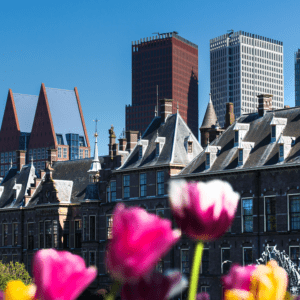
UN Tourism and Hotelschool The Hague, have agreed to partner around the development and execution of pioneering projects in the hospitality industry.
A new Memorandum of Understanding (MoU) aims to stimulate innovation and fresh ventures within the hospitality industry, promoting entrepreneurship and education while engaging in open innovation projects that can enhance the tourism industry, with a particular focus on hospitality. Currently, 20% of entrepreneurs of the UN Tourism Network are directly related to hospitality and are the most dynamic projects including a variety of stakeholders of the industry.
Building on the UN Tourism’s established innovation network, this agreement will further facilitate connections between startups and potential investors, as well as promote knowledge and skills through joint events, communication channels, and media interactions. This partnership not only underlines a commitment to a more sustainable future for the industry but also signifies a shared commitment to providing inclusive opportunities and memorable global student experiences, demonstrated through Hotelschool The Hague’s global Sustainable Hospitality Challenge.
Strong foundations for innovative future
Ms. Natalia Bayona, Executive Director of UN Tourism, expresses: “Unfortunately 90% of startups within the hospitality sector eventually do not succeed. A decent tourism education and knowledge of the hospitality sector is necessary to develop a disruptive and well-functioning product. Through our collaborative efforts, we aspire to alter this trajectory by offering a more robust foundation, fostering invaluable connections, and providing a conducive testbed for emerging startups. Given that technology now permeates 70% of tourism enterprises, it is imperative that these startups are seamlessly integrated into the ecosystem, connected with pertinent stakeholders, and afforded the opportunity to validate their solutions in real-world settings before embarking on a larger scale.

Ms. Regine von Stieglitz, President of the Board of Directors of Hotelschool The Hague says: “At Hotelschool The Hague, we provide our students with the perfect balance of theory, real-world experience and applied research to prepare them for a career in the hospitality industry. We develop leaders who shape our global industry and drive it to give back more than it takes. We are proud to join forces with UN Tourism. We fully embrace their vision to Foster Innovation in the Hospitality Industry. In fact, our Sustainable Hospitality Challenge is a student competition designed to enhance the evolution of sustainable practices in hospitality, aligning seamlessly with the objectives of UN Tourism.”
Hotelschool The Hague, founded and funded by the hospitality industry in 1929, provides high-quality education and cutting-edge research in the field of international hospitality management, with an emphasis on the transformation of sustainability and digitalization and on developing students into sought-after hospitality graduates who excel in leadership roles worldwide.
Related Articles

UN Tourism members advance agenda for Europe as region leads global recovery
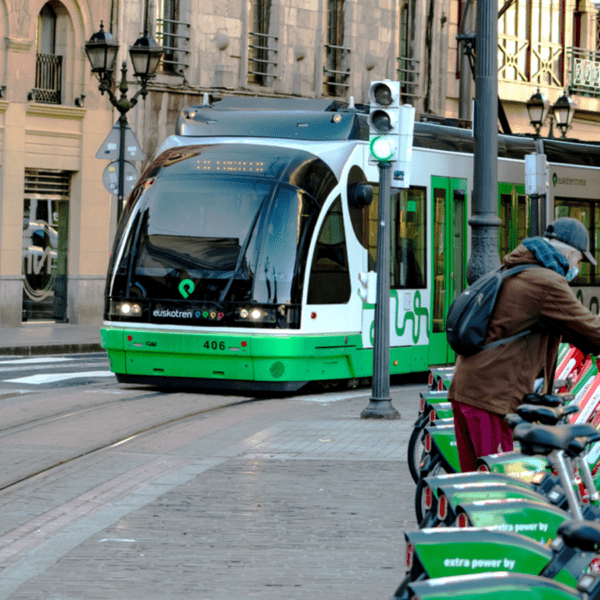
UN Tourism and UN Habitat partner for a better urban future through tourism

Taking Action: Hospitality DEI Initiatives to Engage and Empower

UN Tourism reports openness is back to pre-pandemic levels
Related courses.
You might also like:

Beyond accommodation: six exciting traveler preferences every hotel should anticipate

Innovative promotion ideas for 2024

The impact of Airbnb short-term rentals on rural and urban communities

The “Golden Circle” of Revenue Management

Blended travel as a huge growth opportunity (with words of wisdom from Marriott)

Join over 60,000 industry leaders.
Receive daily leadership insights and stay ahead of the competition.
Leading solution providers:

Demand Calendar

Hotel Mogel Consulting

Maestro PMS

unwto tourism highlights 2022
Un tourism | bringing the world closer.
Unwto 2021: a year in review, 2021: tourism united, resilient and determined.
2021 has been a year of learning and adapting for tourism. It has proven that only by working together can the sector overcome challenges and embrace opportunities.
Gathering the global tourism community and developing concrete actions, UNWTO has led tourism’s response with the vision of not only restarting, but doing so in a more inclusive, innovative and sustainable way.

January - March
As global tourism faced up to a second year of unprecedented crisis , UNWTO began 2021 by counting the cost so far . At the same time, however, the emergence of vaccines brought hope . The Global Tourism Crisis Committee met to explore what this meant for safe travel and the restart of tourism, while the announcement of the winners of the UNWTO Global Start-up Competition recognized the role culture and creativity will play in tourism’s restart and recovery .

April - June
Collaboration and innovation were the focusat the start of the second quarter. UNWTO partnered with IATA on a new Destination Tracker to give both tourists and destinations clear, impartial and trusted advice. And a new Start-up Competition was launched to find the best ideas for accelerating rural development through tourism. In May, the launch of the Best Tourism Villages by UNWTO generated significant interest from Members in every global region.

July - September
As destinations in Europe welcomed tourists back for the peak summer season, UNWTO highlighted the role of digital solutions for the safe restart of the sector. But UNWTO also looked ahead, to a more sustainable future , working with key partners to reduce plastic waste and consumption across every part of the sector. Together, we celebrated World Tourism Day around the theme of Tourism for Inclusive Growth, a message of solidarity and determination that was echoed on a global scale.

October - December
The final quarter of 2021 began with cautious optimism as UNWTO’s Barometer showed signs of improvement in tourist arrival numbers during the summer season in the northern hemisphere. A new partnership with Netflix will bring the message of tourism as a driver of opportunity to a massive global audience, while in November, UNWTO was tourism’s voice at COP26 and signatories to the landmark Glasgow Declaration keep growing. Finally, against the backdrop of the UNWTO General Assembly , the programme of work for the coming biennium was approved and 77% of Members voted to secure a second mandate for the Secretary-General from 2022-2025.
Growing and Moving Forward
UNWTO brings together political leaders from across the globe to deliver a strong, coordinated response. Governments, destinations, fellow UN agencies and international organizations met at key international events joining efforts to rethink tourism. Institutional coordination has proven crucial to find the solutions that build a smarter, greener and safer tourism.
Leaving Nobody Behind
The pledge to ‘ leave nobody behind ’ means nobody should miss out : Not now as we support the sector in the face of crisis, and not in the future as tourism starts again. Tourism is a proven driver of equality and opportunity. And that’s why we turn words into actions, delivering guidelines and action plans , to ensure everyone can enjoy the opportunities tourism brings.
A Shared Vision
Advancing the transformation of the tourism sector , partnerships are the only way forward. In 2021, UNWTO signed agreements with international organizations and the private sector to step our vision for the future of tourism: innovation , education , sustainability , green investment , rural development.
From business as usual to Covid-19
Looking to the future
- Regional Support Office for Asia and the Pacific (RSOAP)
- Member States in Asia and the Pacific
- SUSTAINABLE TOURISM OBSERVATORIES (INSTO)

World Tourism Barometer: September 2022
UNWTO updates World Tourism Barometer and reports international tourism back to 60% of pre-pandemic levels from January to July 2022
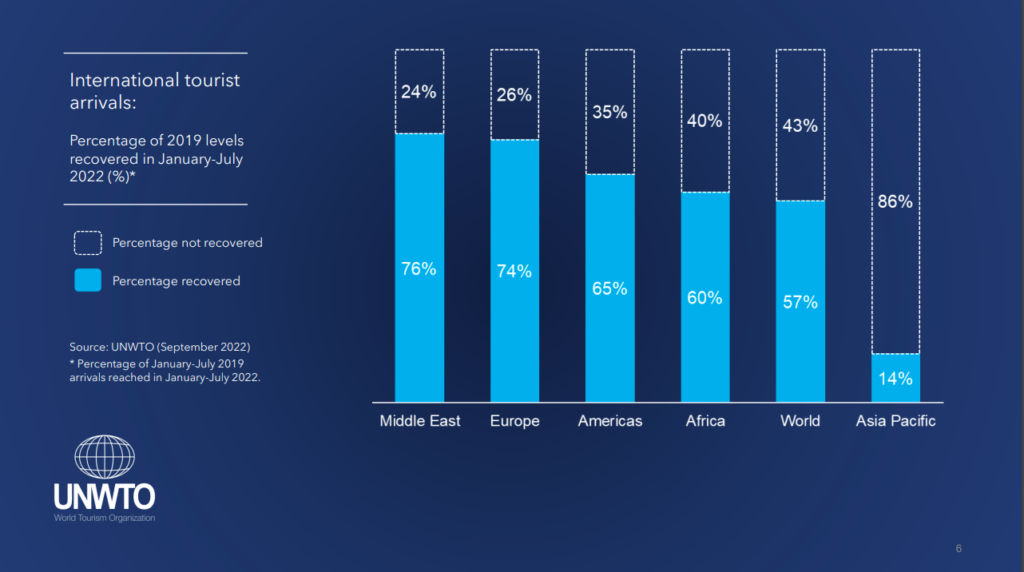
Below are excerpts from the September 2022 release of the UNWTO Tourism Barometer :
- The steady recovery reflects strong pent-up demand for international travel, especially in the months of June and July which are part of the Northern Hemisphere summer season. The easing or lifting of travel restrictions in an increasing number of countries also contributed to boost results.
- International tourist arrivals almost tripled (+172%) in January-July 2022 compared to the same period of 2021. Numbers climbed from -64% in January 2022 (versus 2019) to -28% in July, the strongest month since the start of the pandemic.
- Asia and the Pacific (+165%) saw arrivals more than double in the first seven months of 2022, though they remained 86% below 2019 levels.
- The ongoing recovery can also be seen in outbound tourism spending from major source markets. Expenditure from France was at -12% in January-July 2022 compared to 2019 while spending from Germany stood at -14%. International tourism spending remained at -10% in Belgium, -23% in Italy and -26% in the United States.
- The uncertain economic environment seems to have reversed prospects for a return to pre-pandemic levels in the near term. 61% of UNWTO Panel of Experts now see a potential return of international arrivals to 2019 levels in 2024 or later while those indicating a return to pre-pandemic levels in 2023 has diminished (27%) compared to the May survey (48%).

Know more about the global tourism sector performance from January to July 2022 by checking the UNWTO World Tourism Barometer Volume 20, Issue 5 .
LEAVE A REPLY Cancel reply
Save my name, email, and website in this browser for the next time I comment.
Regional Support Office in Asia and the Pacific (RSOAP)
Rsoap a to z.
- Sustainable Tourism Observatories(INSTO)
UNWTO A to Z
- About UNWTO
- Affiliate Members
- Member States
- Tourism in the 2030 Agenda
- World Tourism Day
- Technical Cooperation
- ASIA AND THE PACIFIC
- MIDDLE EAST
- RESOURCES/SERVICES
- Sustainable Development of Tourism
- Ethics, Culture and Social Responsibility
- Market Intelligence
- Tourism Data Dashboard
- Publications
- UNWTO Academy
Partners links

© UNWTO Regional Support Office for Asia and the Pacific (RSOAP)
- Course Catalog

TOURISM TRENDS 2022
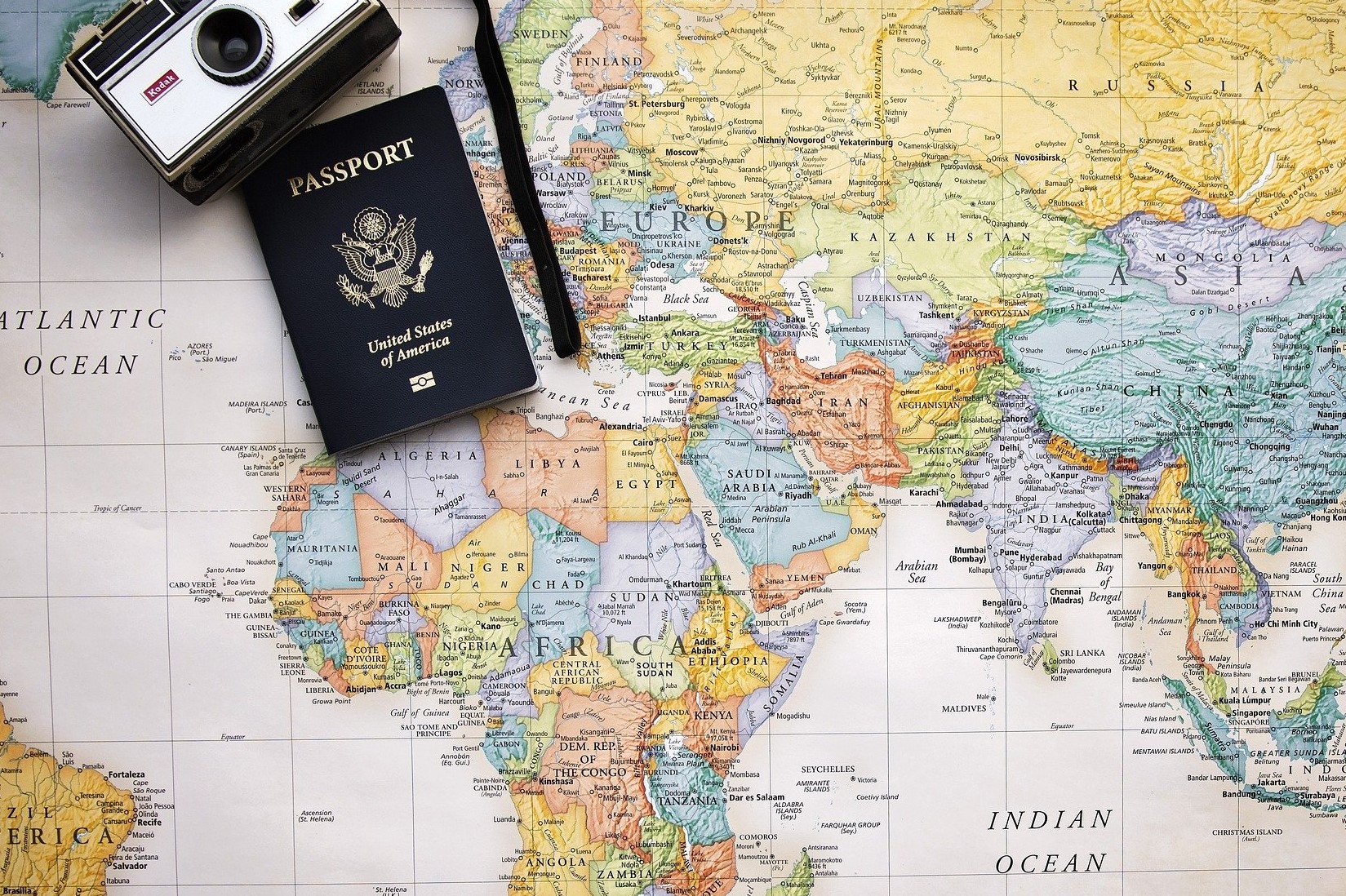
11 Aug TOURISM TRENDS 2022
The situation for tourism remains rather unusual as a result of the ongoing COVID-19 pandemic.
The crisis has marked a significant change for everyone, and above all for tourism, one of sectors hit hardest by the virus. 2020 was the year in which international tourism came to a near-complete standstill, and the only alternatives were domestic and local tourism.
2021 has seen some improvements, but only in a very subtle way as restrictions are still in place and many countries keep their borders fully or partially closed.
It is difficult to make an estimate for 2022 as it is not known how the pandemic will evolve. However, it is possible to talk about the new tourism trends that are likely to emerge over the coming year: – International travel with restrictions still maintained by both destinations and airlines in order to offer 100% security to the consumer.
– Reinforcement of COVID-19 testing; two years after the pandemic, COVID testing will still be in place as a preventive measure. – Conscious travel will be advocated. Travel to more distant destinations, but with prolonged durations of stay, as consumers look to enjoy as much of each place they visit as possible. – Green travel. Climate change is a problem that is present and growing. Consumers now are much more responsible and aware of the reality they live in on daily basis.
– A new trend is the “ed-ventures”. It is about combining education and holidays for the youngest members of the family. While adults may need to telework or attend meetings, their children can be doing workshops and learning in a playful way.
- Client log in
Metallurgicheskii Zavod Electrostal AO (Russia)
In 1993 "Elektrostal" was transformed into an open joint stock company. The factory occupies a leading position among the manufacturers of high quality steel. The plant is a producer of high-temperature nickel alloys in a wide variety. It has a unique set of metallurgical equipment: open induction and arc furnaces, furnace steel processing unit, vacuum induction, vacuum- arc furnaces and others. The factory has implemented and certified quality management system ISO 9000, received international certificates for all products. Elektrostal today is a major supplier in Russia starting blanks for the production of blades, discs and rolls for gas turbine engines. Among them are companies in the aerospace industry, defense plants, and energy complex, automotive, mechanical engineering and instrument-making plants.
Headquarters Ulitsa Zheleznodorozhnaya, 1 Elektrostal; Moscow Oblast; Postal Code: 144002
Contact Details: Purchase the Metallurgicheskii Zavod Electrostal AO report to view the information.
Website: http://elsteel.ru
EMIS company profiles are part of a larger information service which combines company, industry and country data and analysis for over 145 emerging markets.
To view more information, Request a demonstration of the EMIS service

Turn Your Curiosity Into Discovery
Latest facts.
11 Facts About National Numeracy Day May 22nd
9 Facts About Workers Memorial Day April 28th
40 facts about elektrostal.
Written by Lanette Mayes
Modified & Updated: 02 Mar 2024
Reviewed by Jessica Corbett

Elektrostal is a vibrant city located in the Moscow Oblast region of Russia. With a rich history, stunning architecture, and a thriving community, Elektrostal is a city that has much to offer. Whether you are a history buff, nature enthusiast, or simply curious about different cultures, Elektrostal is sure to captivate you.
This article will provide you with 40 fascinating facts about Elektrostal, giving you a better understanding of why this city is worth exploring. From its origins as an industrial hub to its modern-day charm, we will delve into the various aspects that make Elektrostal a unique and must-visit destination.
So, join us as we uncover the hidden treasures of Elektrostal and discover what makes this city a true gem in the heart of Russia.
Key Takeaways:
- Elektrostal, known as the “Motor City of Russia,” is a vibrant and growing city with a rich industrial history, offering diverse cultural experiences and a strong commitment to environmental sustainability.
- With its convenient location near Moscow, Elektrostal provides a picturesque landscape, vibrant nightlife, and a range of recreational activities, making it an ideal destination for residents and visitors alike.
Known as the “Motor City of Russia.”
Elektrostal, a city located in the Moscow Oblast region of Russia, earned the nickname “Motor City” due to its significant involvement in the automotive industry.
Home to the Elektrostal Metallurgical Plant.
Elektrostal is renowned for its metallurgical plant, which has been producing high-quality steel and alloys since its establishment in 1916.
Boasts a rich industrial heritage.
Elektrostal has a long history of industrial development, contributing to the growth and progress of the region.
Founded in 1916.
The city of Elektrostal was founded in 1916 as a result of the construction of the Elektrostal Metallurgical Plant.
Located approximately 50 kilometers east of Moscow.
Elektrostal is situated in close proximity to the Russian capital, making it easily accessible for both residents and visitors.
Known for its vibrant cultural scene.
Elektrostal is home to several cultural institutions, including museums, theaters, and art galleries that showcase the city’s rich artistic heritage.
A popular destination for nature lovers.
Surrounded by picturesque landscapes and forests, Elektrostal offers ample opportunities for outdoor activities such as hiking, camping, and birdwatching.
Hosts the annual Elektrostal City Day celebrations.
Every year, Elektrostal organizes festive events and activities to celebrate its founding, bringing together residents and visitors in a spirit of unity and joy.
Has a population of approximately 160,000 people.
Elektrostal is home to a diverse and vibrant community of around 160,000 residents, contributing to its dynamic atmosphere.
Boasts excellent education facilities.
The city is known for its well-established educational institutions, providing quality education to students of all ages.
A center for scientific research and innovation.
Elektrostal serves as an important hub for scientific research, particularly in the fields of metallurgy, materials science, and engineering.
Surrounded by picturesque lakes.
The city is blessed with numerous beautiful lakes, offering scenic views and recreational opportunities for locals and visitors alike.
Well-connected transportation system.
Elektrostal benefits from an efficient transportation network, including highways, railways, and public transportation options, ensuring convenient travel within and beyond the city.
Famous for its traditional Russian cuisine.
Food enthusiasts can indulge in authentic Russian dishes at numerous restaurants and cafes scattered throughout Elektrostal.
Home to notable architectural landmarks.
Elektrostal boasts impressive architecture, including the Church of the Transfiguration of the Lord and the Elektrostal Palace of Culture.
Offers a wide range of recreational facilities.
Residents and visitors can enjoy various recreational activities, such as sports complexes, swimming pools, and fitness centers, enhancing the overall quality of life.
Provides a high standard of healthcare.
Elektrostal is equipped with modern medical facilities, ensuring residents have access to quality healthcare services.
Home to the Elektrostal History Museum.
The Elektrostal History Museum showcases the city’s fascinating past through exhibitions and displays.
A hub for sports enthusiasts.
Elektrostal is passionate about sports, with numerous stadiums, arenas, and sports clubs offering opportunities for athletes and spectators.
Celebrates diverse cultural festivals.
Throughout the year, Elektrostal hosts a variety of cultural festivals, celebrating different ethnicities, traditions, and art forms.
Electric power played a significant role in its early development.
Elektrostal owes its name and initial growth to the establishment of electric power stations and the utilization of electricity in the industrial sector.
Boasts a thriving economy.
The city’s strong industrial base, coupled with its strategic location near Moscow, has contributed to Elektrostal’s prosperous economic status.
Houses the Elektrostal Drama Theater.
The Elektrostal Drama Theater is a cultural centerpiece, attracting theater enthusiasts from far and wide.
Popular destination for winter sports.
Elektrostal’s proximity to ski resorts and winter sport facilities makes it a favorite destination for skiing, snowboarding, and other winter activities.
Promotes environmental sustainability.
Elektrostal prioritizes environmental protection and sustainability, implementing initiatives to reduce pollution and preserve natural resources.
Home to renowned educational institutions.
Elektrostal is known for its prestigious schools and universities, offering a wide range of academic programs to students.
Committed to cultural preservation.
The city values its cultural heritage and takes active steps to preserve and promote traditional customs, crafts, and arts.
Hosts an annual International Film Festival.
The Elektrostal International Film Festival attracts filmmakers and cinema enthusiasts from around the world, showcasing a diverse range of films.
Encourages entrepreneurship and innovation.
Elektrostal supports aspiring entrepreneurs and fosters a culture of innovation, providing opportunities for startups and business development.
Offers a range of housing options.
Elektrostal provides diverse housing options, including apartments, houses, and residential complexes, catering to different lifestyles and budgets.
Home to notable sports teams.
Elektrostal is proud of its sports legacy, with several successful sports teams competing at regional and national levels.
Boasts a vibrant nightlife scene.
Residents and visitors can enjoy a lively nightlife in Elektrostal, with numerous bars, clubs, and entertainment venues.
Promotes cultural exchange and international relations.
Elektrostal actively engages in international partnerships, cultural exchanges, and diplomatic collaborations to foster global connections.
Surrounded by beautiful nature reserves.
Nearby nature reserves, such as the Barybino Forest and Luchinskoye Lake, offer opportunities for nature enthusiasts to explore and appreciate the region’s biodiversity.
Commemorates historical events.
The city pays tribute to significant historical events through memorials, monuments, and exhibitions, ensuring the preservation of collective memory.
Promotes sports and youth development.
Elektrostal invests in sports infrastructure and programs to encourage youth participation, health, and physical fitness.
Hosts annual cultural and artistic festivals.
Throughout the year, Elektrostal celebrates its cultural diversity through festivals dedicated to music, dance, art, and theater.
Provides a picturesque landscape for photography enthusiasts.
The city’s scenic beauty, architectural landmarks, and natural surroundings make it a paradise for photographers.
Connects to Moscow via a direct train line.
The convenient train connection between Elektrostal and Moscow makes commuting between the two cities effortless.
A city with a bright future.
Elektrostal continues to grow and develop, aiming to become a model city in terms of infrastructure, sustainability, and quality of life for its residents.
In conclusion, Elektrostal is a fascinating city with a rich history and a vibrant present. From its origins as a center of steel production to its modern-day status as a hub for education and industry, Elektrostal has plenty to offer both residents and visitors. With its beautiful parks, cultural attractions, and proximity to Moscow, there is no shortage of things to see and do in this dynamic city. Whether you’re interested in exploring its historical landmarks, enjoying outdoor activities, or immersing yourself in the local culture, Elektrostal has something for everyone. So, next time you find yourself in the Moscow region, don’t miss the opportunity to discover the hidden gems of Elektrostal.
Q: What is the population of Elektrostal?
A: As of the latest data, the population of Elektrostal is approximately XXXX.
Q: How far is Elektrostal from Moscow?
A: Elektrostal is located approximately XX kilometers away from Moscow.
Q: Are there any famous landmarks in Elektrostal?
A: Yes, Elektrostal is home to several notable landmarks, including XXXX and XXXX.
Q: What industries are prominent in Elektrostal?
A: Elektrostal is known for its steel production industry and is also a center for engineering and manufacturing.
Q: Are there any universities or educational institutions in Elektrostal?
A: Yes, Elektrostal is home to XXXX University and several other educational institutions.
Q: What are some popular outdoor activities in Elektrostal?
A: Elektrostal offers several outdoor activities, such as hiking, cycling, and picnicking in its beautiful parks.
Q: Is Elektrostal well-connected in terms of transportation?
A: Yes, Elektrostal has good transportation links, including trains and buses, making it easily accessible from nearby cities.
Q: Are there any annual events or festivals in Elektrostal?
A: Yes, Elektrostal hosts various events and festivals throughout the year, including XXXX and XXXX.
Was this page helpful?
Our commitment to delivering trustworthy and engaging content is at the heart of what we do. Each fact on our site is contributed by real users like you, bringing a wealth of diverse insights and information. To ensure the highest standards of accuracy and reliability, our dedicated editors meticulously review each submission. This process guarantees that the facts we share are not only fascinating but also credible. Trust in our commitment to quality and authenticity as you explore and learn with us.
Share this Fact:

- Victor Mukhin

Victor M. Mukhin was born in 1946 in the town of Orsk, Russia. In 1970 he graduated the Technological Institute in Leningrad. Victor M. Mukhin was directed to work to the scientific-industrial organization "Neorganika" (Elektrostal, Moscow region) where he is working during 47 years, at present as the head of the laboratory of carbon sorbents. Victor M. Mukhin defended a Ph. D. thesis and a doctoral thesis at the Mendeleev University of Chemical Technology of Russia (in 1979 and 1997 accordingly). Professor of Mendeleev University of Chemical Technology of Russia. Scientific interests: production, investigation and application of active carbons, technological and ecological carbon-adsorptive processes, environmental protection, production of ecologically clean food.
Title : Active carbons as nanoporous materials for solving of environmental problems
Quick links.
- Conference Brochure
- Tentative Program

2022 has been the year to rethink tourism. Countries around the world turned UNWTO's vision for a greener, smarter and more inclusive sector into real action. 2020 showed the relevance of tourism for sustainable development. 2021 laid the foundations for the transformation of the sector. In 2022, we made it happen. 2022 began on a positive note.
According to the latest UNWTO World Tourism Barometer, international tourism saw a strong rebound in the first five months of 2022, with almost 250 million international arrivals recorded. This compares to 77 million arrivals from January to May 2021 and means that the sector has recovered almost half (46%) of pre-pandemic 2019 levels. UN ...
International Tourism Highlights, 2023 Edition - The Impact of COVID-19 on Tourism (2020-2022) ISBN (printed version): 978-92-844-2497-9 ISBN (electronic version): 978-92-844-2498-6 DOI: 10.18111/9789284424986 Published by the World Tourism Organization (UNWTO), Madrid, Spain First published: September 2023 Revised and updated: October 2023
Find out the latest updates from the UNWTO on tourism trends, challenges and opportunities in 2022 and beyond. Learn about the UNWTO's activities, projects and partnerships in various regions and topics, such as sustainable tourism, gastronomy, investment and education.
International Tourism and COVID-19. Export revenues from international tourism dropped 62% in 2020 and 59% in 2021, versus 2019 (real terms) and then rebounded in 2022, remaining 34% below pre-pandemic levels. The total loss in export revenues from tourism amounts to USD 2.6 trillion for that three-year period. Go to Dashboard.
According to the latest UNWTO World Tourism Barometer, international tourist arrivals almost tripled in January to July 2022 (+172%) compared to the same period of 2021. This means t he sector recovered almost 60% of pre-pandemic levels. The steady recovery reflects strong pent-up demand for international travel as well as the easing or lifting ...
The time is now to seize this opportunity to rethink how we do tourism. The official World Tourism Day celebration will be held in Bali, Indonesia, on 27 September, highlighting the shift towards tourism being recognized as a crucial pillar of development. Wonderful Indonesia - Witness the 42nd World Tourism Day 2022 in Bali, Indonesia!
In terms of tourist numbers, the year 2022 is expected to close with over 900 million international arrivals, despite growing challenges pointing to a softening of the recovery pace. International tourist arrivals: 2020, 2021 and Scenarios for 2022 (monthly change over 2019,%) Source UNWTO World Tourism Barometer: November 2022 Press Release.
January - March. As global tourism faced up to a second year of unprecedented crisis, UNWTO began 2021 by counting the cost so far.At the same time, however, the emergence of vaccines brought hope.The Global Tourism Crisis Committee met to explore what this meant for safe travel and the restart of tourism, while the announcement of the winners of the UNWTO Global Start-up Competition ...
Below are excerpts from the latest World Tourism Barometer May 2022 issue: According to the latest UNWTO World Tourism Barometer, international tourism saw a 182% year-on-year increase in January-March 2022, with destinations worldwide welcoming an estimated 117 million international arrivals compared to 41 million in Q1 2021.
The UNWTO Elibrary is an online service from the World Tourism Organization (UNWTO) with a broad coverage of tourism and related subject areas. ... International Tourism Highlights, 2023 Edition - The Impact of COVID-19 on Tourism (2020-2022) Revised and updated, October 2023. Released: December 2023.
The 7th UNWTO World Forum on Gastronomy Tourism will be held from Monday, December 12 to Thursday, December 15, 2022 (4 days).
The economic contribution of tourism (tourism direct gross domestic product) is estimated at US$1.9 trillion in 2021, above the US$1.6 trillion in 2020, but still well below the pre-pandemic value of US$ 3.5 trillion. The latest UNWTO Panel of Experts survey indicates that 61% of tourism professionals expect better performance in 2022 than in 2021.
Below are relevant points to the July 2022 World Tourism Barometer: Nearly 250 million international trips were recorded worldwide in the first five months of the year, more than three times the number of arrivals recorded in the same period of 2021 (77 million). Robust performance is also reflected in hotel occupancy rates.
2022-10-28. Below are excerpts from the September 2022 release of the UNWTO Tourism Barometer: The steady recovery reflects strong pent-up demand for international travel, especially in the months of June and July which are part of the Northern Hemisphere summer season. The easing or lifting of travel restrictions in an increasing number of ...
International tourism continues to outpace the global economy. 2. Driven by a relatively strong global economy, a growing middle class in emerging economies, technological advances, new business models, affordable travel costs and visa facilitation, international tourist arrivals grew 5% in 2018 to reach the 1.4 billion mark.
UNWTO Tourism Academy | TOURISM TRENDS 2022. The situation for tourism remains rather unusual as a result of the ongoing COVID-19 pandemic. The crisis has marked a significant change for everyone, and above all for tourism, one of sectors hit hardest by the virus. 2020 was the year in which international tourism came to a near-complete ...
International Tourism Highlights, 2023 Edition - The Impact of COVID-19 on Tourism (2020-2022) Revised and updated, October 2023 Published: December 2023 Pages: 32
International Tourism Highlights, 2020 Edition. Published: January 2021 Pages: 23. eISBN: 978-92-844-2245-6 | ISBN: 978-92-844-2244-9. Abstract: 2019 was another year of strong growth, though international arrivals grew below the exceptional rates seen in 2017 (+7%) and 2018 (+6%). Demand was somewhat weaker for travel to advanced economy ...
Main Activities: Iron and Steel Mills and Ferroalloy Manufacturing | Nonferrous Metal (except Copper and Aluminum) Rolling, Drawing, and Extruding. Full name: Metallurgicheskii Zavod Electrostal AO Profile Updated: February 22, 2024. Buy our report for this company USD 29.95 Most recent financial data: 2022 Available in: English & Russian ...
40 Facts About Elektrostal. Elektrostal is a vibrant city located in the Moscow Oblast region of Russia. With a rich history, stunning architecture, and a thriving community, Elektrostal is a city that has much to offer. Whether you are a history buff, nature enthusiast, or simply curious about different cultures, Elektrostal is sure to ...
Catalysis Conference is a networking event covering all topics in catalysis, chemistry, chemical engineering and technology during October 19-21, 2017 in Las Vegas, USA. Well noted as well attended meeting among all other annual catalysis conferences 2018, chemical engineering conferences 2018 and chemistry webinars.
In the city of Elektrostal in Russia, a drone attack occurred. It's reported that no one was injured as a result of the incident. Additional details, including the particulars of the attack, potential motives or responsible parties, have not been provided. However, the fact that a drone was used as a means of attack underscores
Explore Jobs
- Jobs Near Me
- Remote Jobs
- Full Time Jobs
- Part Time Jobs
- Entry Level Jobs
- Work From Home Jobs
Find Specific Jobs
- $15 Per Hour Jobs
- $20 Per Hour Jobs
- Hiring Immediately Jobs
- High School Jobs
- H1b Visa Jobs
Explore Careers
- Business And Financial
- Architecture And Engineering
- Computer And Mathematical
Explore Professions
- What They Do
- Certifications
- Demographics
Best Companies
- Health Care
- Fortune 500
Explore Companies
- CEO And Executies
- Resume Builder
- Career Advice
- Explore Majors
- Questions And Answers
- Interview Questions
25 Hotel Industry Statistics [2023]: Hotel Rate Trends And Market Data

- Wedding Industry Statistics
- Yoga Industry Statistics
- Music Industry Statistics
- Landscaping Industry Statistics
- Bicycle Industry Statistics
- Coffee Industry Statistics
- Car Rental Industry Statistics
- Home Improvement Industry Statistics
- Insurance Industry Statistics
- Supplements Industry Statistics
- Golf Industry Statistics
- Fitness Industry Statistics
- US Media And Entertainment Industry Statistics
- Firearm Industry Statistics
- Financial Services Industry Statistics
- Health And Wellness Industry Statistics
- Trucking Industry Statistics
- Wine Industry Statistics
- Pet Industry Statistics
- Mobile App Industry Statistics
- Digital Marketing Industry Statistics
- Hotel Industry Statistics
- Retail Statistics
- Robotics Industry Statistics
- Jewelry Industry Statistics
- Appointment Scheduling statistics
- Restaurant Industry Statistics
- Food Delivery Statistics
- Food Truck Industry
- Fashion Industry
- Real Estate Industry
- US Film Industry
- US Beverage Industry
- USu202fFast Food Restaurants
- US Construction Industry
- US Book Industry
- Cosmetics Industry
- US Food Retail Industry
- US Pharmaceutical Industry
- US Healthcare Industry
- Airline Industry
- Automobile Industry
- Transportation Industry Statistics
- Event Industry Statistics
- Project Management Statistics
- Oil And Gas Industry Statistics
- Nursing Home Statistics
- Nursing Shortage Statistics
- Nursing Statistics
Research Summary. The hotel industry not only reaches across the globe but also spans a wide cross-section of options ranging from budget motels to luxury resorts, making it an interesting field to study. Here are the key statistics on the hotel industry:
There are at least 187,000 hotels in the world as of 2023.
There are an estimated 17.5 million guestrooms in the world.
The global hospitality industry is worth over $4.548 trillion as of 2022.
There are about 1.6 million people employed by the U.S.’s accommodation industry.
The global travel and tourism industry was worth $4.671 trillion in 2020 , down from its $9.17 trillion value in 2019.
The average U.S. hotel occupancy rate is 64.2% as of February 2023.

Hotel Industry Statistics by Consumer Preferences
78% of millennials would rather spend their money on experiences than on things.
Hotels with a significant number of high-quality photos on their websites see a 15% increase in conversion rates.
This is compared to hotels that use few and/or low-quality photos. Including good photos of hotel rooms and amenities helps travelers know what they’re getting into and better imagine themselves there.
TripAdvisor shared that the number of photos a hotel has on its TripAdvisor profile has the most impact on traveler engagement with the listing.
More specifically, properties with at least one photo see a 138% increase in engagement and are 225% more likely to receive a booking inquiry, and those with over 100 photos see a 151% increase in engagement and are 283% more likely to receive a booking inquiry.
Europe has the highest hotel occupancy rate of any region in the world.
As of 2019, European hotels have an occupancy rate of 72.2%, meaning an average of 72.2% of all hotel rooms are occupied.
US Hotel Industry Statistics
There are 90,562 hotel and motel businesses in the U.S.
This number is a 0.4% increase from 2021, which is on trend with the average annual growth rate of 0.4% that this industry has seen from 2017 to 2022.
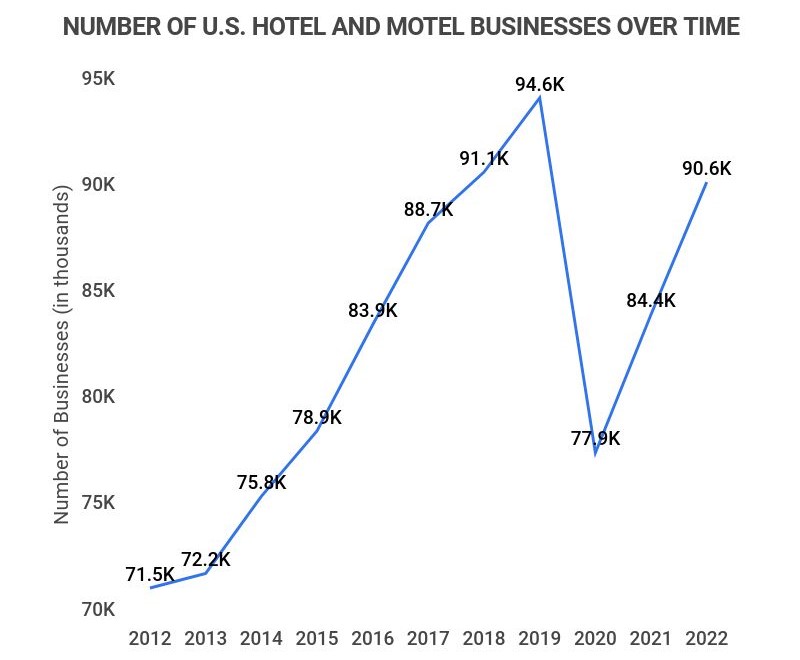
There are approximately 5.29 million hotel rooms in the U.S.
The U.S. hotel and motel industry is worth $177.6 billion.
This industry is predicted to grow by 33.6% throughout 2022 as it continues to recover from the COVID-19 pandemic, although it’s seen an average annual decline of 2.4% from 2017 to 2022.
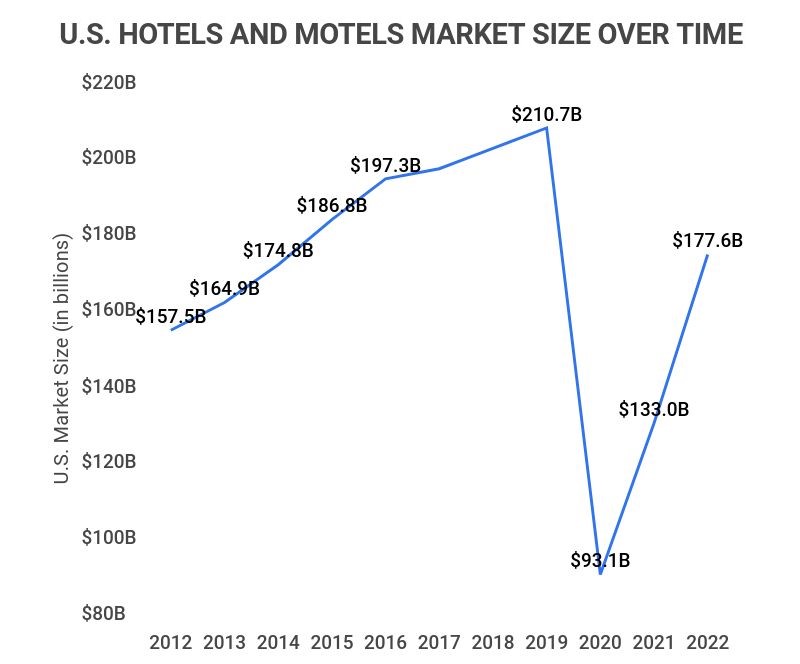
The U.S. tourism industry was valued at $545.11 billion in 2020.
In 2020, U.S. hotels had an average occupancy rate of 44%.
Hotel Industry Statistics by Employment
The U.S.’s accommodation industry employs about 1.6 million people.
In Q1 2019, there were 1.352 million gross job gains in the U.S. leisure and hospitality sector.
Here are data points for each quarter from Q1 2019 through Q2 2021.
In Q1 of 2019, there were 1.22 million gross job losses in the U.S. leisure and hospitality industry.
Here are the numbers for each quarter following that through Q2 2021:
The average employee of the U.S. leisure and hospitality industry makes $19.44 an hour.
32% of U.S. leisure and hospitality industry employees have access to employer-sponsored health care.
43% get paid vacation from their employers, and 50% receive paid sick leave .
Hotel Industry Trends and Projections
In 2019, the global hotels and resorts market was worth over $1.5 trillion.
This was just before the COVID-19 pandemic caused widespread lockdowns in 2020, and it was the pinnacle of seven years of nearly continuous growth.
From 2021 to 2025, the global hotel and travel accommodation industry is projected to have a CAGR of 7%.
This will result in a market value of $1.05 trillion in 2025. In 2020, the global hotel and travel accommodation market was worth $673.02 billion, and it grew to $801.9 billion in 2021, which is a CAGR of 19.1%.
In 2020, travel and tourism contributed $4.671 trillion to the global GDP.
While this is a significant amount of money, it is also a significant decrease from the $9.17 trillion it contributed in 2019. This is a result of the 2020 COVID-19 lockdowns that significantly reduced the amount of travel in the world.
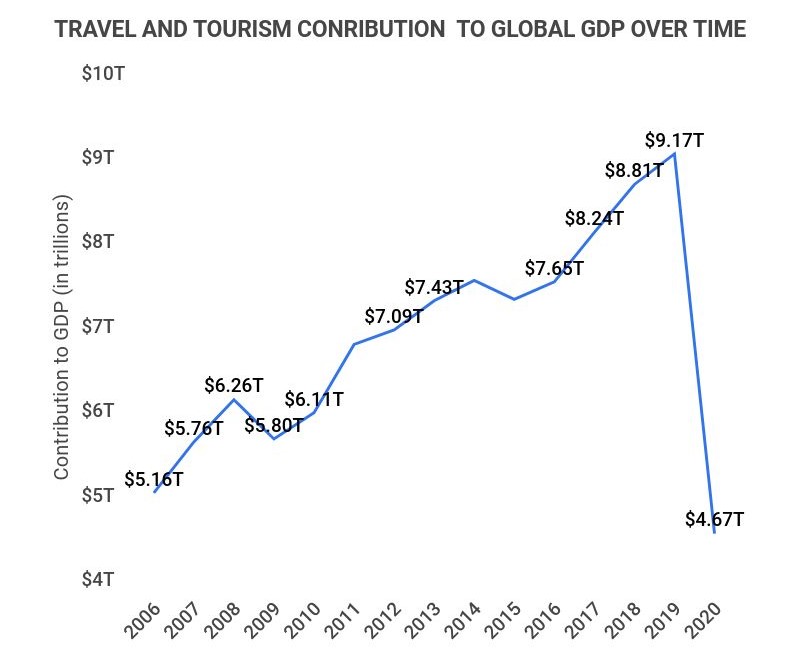
From 2008 to 2018, the number of hotels around the world has increased by nearly 14,300.
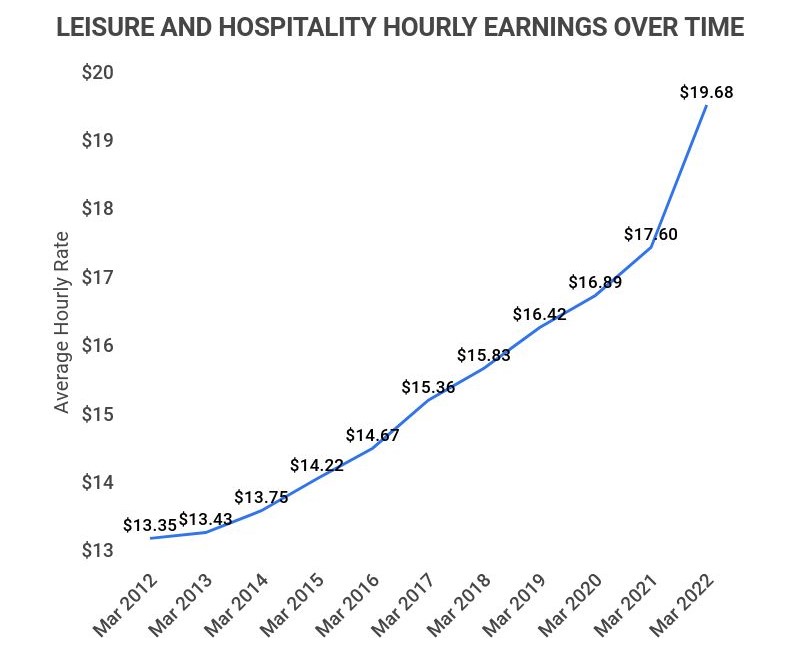

Hotel Industry Statistics FAQ
What is the growth rate of the hotel industry?
The growth rate of the hotel industry is 19.1%. This was the CAGR from 2020 to 2021 as the global hotel industry reopened after the COVID-19 pandemic lockdowns began to lift.
What are the four segments of the hospitality industry?
The four segments of the hospitality industry are Food and Beverage, Accommodation (also referred to as Lodging), Travel and Tourism, and Entertainment and Recreation.
You don’t necessarily have to be traveling to enjoy the hospitality industry’s offerings. The Food and Beverage sector, for example, includes restaurants , bowling alley food, and concessions stands, not just hotel restaurants. As a result, this is the largest sector of the hospitality industry.
The Accommodation or Lodging sector includes hotels, campgrounds, rental homes, and any other facility that gives people a place to sleep. This includes resorts, motels, and hostels all alike.
The Travel and Tourism sector covers the actual act of traveling via airlines, cruise ships, trains, taxis, and more. Whether you’re traveling for leisure or business, chances are you’ll utilize at least one of travel and tourism’s offerings on a trip.
The last sector of the hospitality industry is Entertainment and Recreation. This sector is made up of all the activities that people do just for the enjoyment of it. These include:
Swimming pools
Spectator sports
Movie theaters
Participatory sports (e.g., scuba diving, golf, tennis)
Amusement parks
How many American hospitality workers were fired or laid off in 2020?
10.65 million American hospitality workers were fired or laid off in 2020. While About 1.2 to 1.4 million people in this industry lost their jobs each quarter throughout 2019, 1.695 found themselves unemployed in Q1 2020, and a whopping 6.331 million were suddenly unemployed in Q2 2020 due to the COVID-19 pandemic lockdowns.
Is the hotel industry recovering?
Yes, the hotel industry is recovering. The global hotel and travel accommodation industry is expected to have a CAGR of 7% from 2021 to 2025.
What are the latest trends in the hotel industry?
The latest trends in the hotel industry are high-tech, green facilities, alternative accommodation options, and incorporating experiences into hotel stays.
Hotels are beginning to implement more and more smart technology, whether it’s a keyless entry or turning on the AC with an app. In addition, many hotels are looking for ways to reduce their carbon footprint by conserving water, reducing single-use plastics, and earning their LEED certifications.
Another hotel industry trend is that travelers (especially millennials) are looking more toward alternative accommodation options, whether that’s a rental house or villa, a mobile home, or hotels with a personality that reflect the local culture rather than standardized branding.
Hotels are responding to this by focusing on opening boutique hotels and facilities that bring unique elements to their decor, amenities, and even floor plans.
The hotel industry is a major player in the global and U.S. economies. In 2022, the global hotel industry was worth more than $4.548 trillion and is projected to see a CAGR of 7% from 2021 to 2025. In the U.S. alone, the hotel and motel industry is worth $177.6 billion, and the tourism industry is worth $545.11 billion.
Lockdowns in response to the COVID-19 pandemic in 2020 significantly impacted this industry. The worldwide travel and tourism industry contributed $4.671 trillion to the global GDP in 2020, which is just over half the amount it contributed in 2019 ($9.17 trillion).
In the U.S., over seven million leisure and hospitality industry employees lost their jobs during the first six months of 2020, compared to the just over five million that found themselves unemployed throughout all of 2019. Hotel occupancy rates also dropped by 33.3% from 2019 to 2020.
Eventbrite. “ Millennials: Fueling the Experience Economy. ” Accessed on February 16, 2022.
Medium . “ The Importance of Imagery on Hotel Websites. ” Accessed on February 16, 2022.
Frederic Gonzalo. “ Photos Impact Bookings More Than Reviews. ” Accessed on February 16, 2022.
Statista. “ Occupancy Rate of the Hotel Industry Worldwide From 2008 to 2019, by Region. ” Accessed on February 16, 2022.
IBISWorld. “ Hotels & Motels in the U.S. – Number of Businesses 2005-2027. ” Accessed on February 16, 2022.
Statista. “ Number of Hotel Rooms in the United States From 2017 to 2020, by Chain Scale Segment. ” Accessed on February 16, 2022.
IBISWorld. “ Hotels & Motels in the U.S. – Market Size 2005-2027. ” Accessed on February 16, 2022.
Statista. “ Market Size of the Tourism Sector in the United States From 2011 to 2020, with a Forecast for 2021. ” Accessed on February 16, 2022.
Statista. “ Occupancy Rate of Hotel Industry in the United States From 2001 to 2020. ” Accessed on February 16, 2022.
U.S. Bureau of Labor Statistics. “ Accommodation: NAICS 721. ” Accessed on February 16, 2022.
U.S. Bureau of Labor Statistics. “ Economic News Release: Employment Situation Summary. ” Accessed on February 16, 2022.
U.S. Bureau of Labor Statistics. “ Databases, Tables & Calculators by Subject: Gross Job Gains for the Leisure and Hospitality Sector in the U.S. (Rounded to the Nearest Thousands.) ” Accessed on February 16, 2022.
U.S. Bureau of Labor Statistics. “ Databases, Tables & Calculators by Subject: Gross Job Losses for the Leisure and Hospitality Sector in the U.S. (Rounded to the Nearest Thousands). ” Accessed on February 16, 2022.
U.S. Bureau of Labor Statistics. “ Leisure and Hospitality. ” Accessed on February 16, 2022.
IBISWorld. “ Global Hotels & Resorts – Market Size 2005-2027. ” Accessed on February 16, 2022.
Globe Newswire. “ Global Hotel and Other Travel Accommodation Market Report 2021: Market is Expected to Grow From $673.02 Billion in 2020 to $801.9 Billion in 2021 – Long-term Forecast to 2025 & 2030. ” Accessed on February 16, 2022.
Statista. “ Total Contribution of Travel and Tourism to Gross Domestic Product (GDP) Worldwide From 2006 to 2020. ” Accessed on February 16, 2022.
Statista. “ Total Number of Hotels Worldwide From 2008 to 2018. ” Accessed on February 16, 2022.
Hospitality Net. “ What Are the 4 Segments of the Hospitality Industry. ” Accessed on February 16, 2022.
Hotel Tech Report. “ 100 Hotel Trends You Need To Watch in 2022 & Beyond. ” Accessed on February 16, 2022.
How useful was this post?
Click on a star to rate it!
Average rating / 5. Vote count:
No votes so far! Be the first to rate this post.

Abby is a writer who is passionate about the power of story. Whether it’s communicating complicated topics in a clear way or helping readers connect with another person or place from the comfort of their couch. Abby attended Oral Roberts University in Tulsa, Oklahoma, where she earned a degree in writing with concentrations in journalism and business.
Recent Job Searches
- Registered Nurse Jobs Resume Location
- Truck Driver Jobs Resume Location
- Call Center Representative Jobs Resume Location
- Customer Service Representative Jobs Resume
- Delivery Driver Jobs Resume Location
- Warehouse Worker Jobs Resume Location
- Account Executive Jobs Resume Location
- Sales Associate Jobs Resume Location
- Licensed Practical Nurse Jobs Resume Location
- Company Driver Jobs Resume
Related posts

25+ Trending Twitter Statistics [2023]

Average Annual Raise [2023]: Industry, Demographic, Regional Averages, And More

75+ Must-Know LGBTQ+ Workplace Discrimination Statistics [2023]: Rates and Trends

24 Airbnb Statistics [2023]: Users, Revenue, Trends, Demographics, And Facts
- Career Advice >
- Industry Statistics >
Latest News
Jackson hole’s iconic rusty parrot lodge & spa reopens with summer debut.

Saudia launches Beta version of revolutionary digital platform

Aqua-Aston Hospitality debuts dual-branded Fairfield Inn & Suites and TownePlace Suites Hotels in Tempe, Arizona

European Cyclists’ Federation re-elects president and welcomes new and returning board members

Experts outline a promising future for the GCC hospitality sector, as the UAE market is forecasted to exceed US$7bn by 2026

Aviation leaders convened for the EUROCAE Symposium, marking a return to its birthplace in Lucerne

Alaska Airlines expands presence in Southern California with new routes and increased service to popular West Coast destinations

Macau becomes the “Preferred Destination” of European travel agents and Tour Operators for 2025

Hyatt reveals survey findings on the hotel stay needs of neurodivergent travelers

Delta Board of Directors welcomes Maria Black and Willie Chiang as newest members

Grand Hyatt Atlanta, in Buckhead unveils multi-phased 2024 renovation

Grand Hyatt Atlanta in Buckhead introduces multi-Phased 2024 renovation journey with guestrooms, suites, lobby and meeting spaces.
ATLANTA – Nestled in the heart of the vibrant Buckhead neighborhood, Grand Hyatt Atlanta , in Buckhead announces an extraordinary transformation of its legendary premises. This multi-phased renovation will revolutionize the iconic 25-story landmark. Set for a grand reveal in early 2025, this extensive project will enhance every aspect of the hotel, from the luxurious guest rooms and dynamic meeting spaces to the arrival experience with the newly conceptualized lobby lounge, ushering in a new era of unparalleled luxury and elegance.

Grand Hyatt Atlanta in Buckhead, room.
As a beacon of sophistication within Atlanta’s bustling business and shopping district, Grand Hyatt Atlanta in Buckhead has long stood as a pillar of the community, catering to an array of upscale gatherings, from intimate weddings to high-powered business meetings. Beyond its prestigious façade, the hotel is celebrated for its serene Japanese Zen Garden, complete with a striking 30-foot waterfall – a tranquil oasis amid the urban excitement.
“With this renovation, Grand Hyatt Atlanta in Buckhead will curate a new type of luxury experience. Guests and visitors will retreat into the hotel with one-of-kind experiences for dining, events, and special celebrations,” said Kristi Cotten-Morris , General Manager. “ Our commitment to delivering an extraordinary guest experience remains unwavering, and we are confident that our renovated property will continue to be a cherished destination for travelers seeking the epitome of luxury and hospitality in Atlanta .”

Grand Hyatt Atlanta in Buckhead, dining area.
The renovation will infuse the guest rooms with new vibrancy, transforming them into opulent sanctuaries that offer not just a stay, but a journey into unparalleled sophistication and comfort. This sweeping alteration will then cascade through the lobby and public spaces, embodying a complete 360-degree metamorphosis that redefines luxury. The property will also introduce a market area, reminiscent of a boutique gift shop, featuring gourmet food and quick, artisanal sandwiches perfect for guests on the move. The transformation will ultimately culminate in the meeting areas, ensuring that every corner of the hotel reflects sheer sophistication.
The guestroom strategy was planned in collaboration with Whitespace Interiors and local subcontractors for seamless execution. The design team at Whitespace drew guestroom inspiration from local and national artists Rae Broyles and Laura Naples . The objective was to showcase local talent and integrate diverse artistic perspectives, enhancing the hotel’s ambiance. The design inspiration was rooted in capturing, “ The Heart and Soul of Buckhead, Atlanta, ” with a focus on creating impactful visual moments, such as a custom headboard mural reflecting the lush foliage enveloping Buckhead.

Grand Hyatt Atlanta in Buckhead, Japanese Zen Garden.
As the renovation continues through the rest of the year the property will be working with another design team for the public areas. Grand Hyatt Atlanta, in Buckhead promises an experience that will not only be a feast for the eyes but also transform luxury hospitality. This new chapter represents a bold step forward, merging meticulous craftsmanship with sophisticated design to create a landmark achievement in luxury.

Theodore Koumelis
Theodore is the Co-Founder and Managing Editor of TravelDailyNews Media Network; his responsibilities include business development and planning for TravelDailyNews long-term opportunities.
- Theodore Koumelis https://www.traveldailynews.com/author/theodore-koumelis/ Jackson Hole’s iconic Rusty Parrot Lodge & Spa reopens with Summer debut
- Theodore Koumelis https://www.traveldailynews.com/author/theodore-koumelis/ Aqua-Aston Hospitality debuts dual-branded Fairfield Inn & Suites and TownePlace Suites Hotels in Tempe, Arizona
- Theodore Koumelis https://www.traveldailynews.com/author/theodore-koumelis/ Experts outline a promising future for the GCC hospitality sector, as the UAE market is forecasted to exceed US$7bn by 2026
- Theodore Koumelis https://www.traveldailynews.com/author/theodore-koumelis/ Hyatt reveals survey findings on the hotel stay needs of neurodivergent travelers
Related posts

Announcing FORTH Atlanta: A new hospitality landmark set to open in Atlanta’s Old Fourth Ward District

Signia by Hilton debuts flagship hotel in Downtown Atlanta
Hard rock international announces hard rock hotel atlanta, atlanta chosen as site of 2016 travel exchange, previous post, europalco transforms portugal's biggest venue into a spectacular sound show, paradies lagardère continues commitment to the communities it serves.

ACI Europe Annual Congress & General Assembly 2024

New MMGY global study casts on the complexity of travel for families with neurodicerse children

Etihad’s A380 loves New York

CHTA opens applications for the Young Leaders Forum: Shaping tomorrow’s hospitality innovators

National Travel selects Sabre distribution network to help better serve Federal Government Agencies

Marriott International signs agreement with NEOM to bring the Ritz-Carlton Reserve to Trojena, the Mountains of NEOM

Next Generation security checkpoint screening goes live at Aberdeen International Airport

Mirai exceeds 5.8 million room nights and $1B TTV in 2023 and targets 20% growth in 2024 through direct hotel sales

Students Traveling with EF Educational Tours and EF Explore America going cashless through partnership with Till Financial’s fee-free app and debit card

Baptiste Caulonque appointed CEO of Pegasus Lodges

World of Hyatt elevates luxury portfolio by adding more than 700 boutique and luxury hotels and villas from Mr & Mrs Smith

Iain Andrew joins QuadLabs board as the Chairman and non-executive director April 25, 2024

Gulf Air introduces Guangzhou and Shanghai as its latest destinations

Oceania Cruises debuts new Mediterranean sailings for 2025

ACC Aviation has extended the exclusive marketing partnership with Freedom II

Secretary General advocates for the rule of international aviation law

Avianca Airlines renews “Business Class” experience in Europe and Americas

Europalco transforms Portugal’s biggest venue into a spectacular sound show

Meeting & Event Barometer 2023/24: Ongoing upward trend in the German events market

Global Hotel Alliance’s report reveals what travellers want most from loyalty programmes

Carnival Cruise Line adds fifth new ship to fleet in 18 months

Why migration is no longer your only chance at a better life

Online gambling is cutthroat, thus casino rewards bonuses are key

SHR expands its Global Advisory Board, uniting industry leaders to strengthen innovation in the hospitality industry

Mastercard transforms the fight against scams with latest AI tech

Top eight leading hospitality and tourism jobs in 2024

Royal Caribbean Group reports record bookings for First Quarter 2024

What to do on a weekend in Tulum

Banyan Group releases 2023 Sustainability Report

Air Charter Service announces new Head of Swiss office

Revenues 12.8b and EBIT Adjusted 0.6b for Airbus in the First Quarter of 2024

Samana Developers launches Dh1 bn ‘Lake Views Complex’ in Dubai Production City

Air Serbia has carried a million passengers since the beginning of the year

UFI announces winners of 2024 Next Generation Leadership grant programme

Ottawa Tourism and The Hague & Partners celebrate five years of partnership with renewed agreement

Dangerous FAA amendment would undermine aviation security, delay millions of flyers, set TSA screening back decades

Hostaway launches Hostaway Capital in partnership with Parafin

Boeing reports First Quarter results: Revenue of $16.6 billion

airBaltic launches direct flights from Riga to Ljubljana

Embassy Suites by Hilton Deerfield Beach Resort & Spa unveils multi-million-dollar property renovation

Westward Look Resort & Spa announces Ryan Jones as Executive Chef

Shannon Airport set to reach the 2 million passenger mark by the end of 2024

CityDNA elects new leadership during “Reality Check!” International Conference

Icelandair announces Q1 financial results: Revenue increase of 11%, total income USD 259.0 million

TAAAG – Angola Airlines announces new 5-year contract with AFI KLM E&M on Boeing 777 pool and repair component support

Jamaican minister Edmund Bartlett challenges youth to be part of tourism

Paradero Todos Santos appoints new General Property Manager and Wedding Sales Manager

Record-breaking WTM Africa 2024 signals surging interest in African tourism

JetBlue elevates seamless living in the sky with Blueprint by JetBlue: A personalized inflight experience

Villas of Distinction reveals Q1 booking trends

art’otel opens the doors to its second London property in the heart of the neighborhood of Hoxton, Shoreditch

Nadia Panasyuk named Vice President of Revenue Strategy at First Hospitality

Hilton Grand Vacations unveils 2024 Brand Ambassadors to headline exclusive member experiences

Rethinking wellness travel: the rise of active well-being

Alvar: Newest luxury community delivers first residences at Quivira Los Cabos

The Moore opens in Miami

U.K. travellers lead the world in early 2025 holiday bookings

Unexpected layovers: Tips for tourists to survive the interim

BeCause partners with WTTC to advance more sustainable hotel operations

airBaltic introduces additional pop-up flights for Summer

Le Petit Hôtel Notre-Dame to open in Summer 2024 in Montreal

HOTEL de LEN becomes the first hotel in Cortina to obtain ClimaHotel Certification

G Adventures expands “Jane Goodall Collection” in honour of renowned environmentalist’s 90th birthday

CEIR releases 2024 CEIR Index Report, continued growth forecast through 2026

The Ritz-Carlton Residences, Estero Bay reveal penthouse collection

Under the stars: Choosing the right camping tent for your adventure

Safety tips when visiting Dallas, TX – From a personal injury lawyer

Jannah Lamu, the new creation of Anna Trzebinski, is now open to guests

U.S. hotel development kicks off Q1 2024 with growth and record-highs

Accelerating airports’ climate action with ICAO

AI and booking systems top priorities for travel tech stacks

Hilton reports First Quarter results: Adjusted EBITDA was $750m., 29,800 new rooms approved for development

Valuedynamx partnership with Expedia Group drives 20% growth

Daniela Victoria promoted to Director of Sales ay luxury Anguilla resort Malliouhana

Knight Frank: 320,000 new hotel rooms expected in Saudi Arabia by 2030

Dream Vacations/CruiseOne treat top performers to a full ship charter aboard AmaWaterways AmaBella

Hilton announces dynamic executive leadership team at Waldorf Astoria New York

Record 2023 for Holibob on track to be broken

Wizz Air partners with InterLnkd to launch intelligent shopping platform

BEONx secures NextGenerationEU funding for Digital Transformation

Routes Europe officially handed over to 2025 hosts

intuitive launches most advanced version of iVector: extending enterprise power across the travel industry

Hilton announces 2023 Americas Development Award winners

JetBlue announces first Quarter 2024 results

Autograph Collection Hotels announces the opening of Hacienda del Mar Los Cabos, Autograph Collection

La Concha Key West announces Lilian Garapan as Director of Food & Beverage

ITM “Pulse Check” highlights current concerns for travel buyers

The Travel & Adventure Show Series concludes the 2024 season with a record-breaking year and successful new market launch

ONYX Hospitality Group runs UK sales mission to strengthen travel industry partnerships

Nikki Beach Global, evolves into Nikki Beach Hospitality Group ahead of the 2024 Summer season

Former Navan CRO returns as CEO of Navan Travel and Amy Butte of Sabre Fame joins Board

Cendyn’s World Tour kicks off in New York

Latest Booking.com sustainable travel data reveals ongoing challenges for consumers

Budapest Airport named Overall Winner at Routes Europe 2024 Awards

How visiting a spiritual retreat can transform your life from stress to Zen

Hilton expands Guadalajara portfolio with signing of Canopy by Hilton Guadalajara

Quicktext announces partnership with Mob Hotel Group

Merriweather Lakehouse Hotel welcomes Marketing Director Bridgette O’Neil

Hotel gossip creates career block for hospitality workers says study

The contribution of tourism to the Greek economy, 2019-2023

IAEE launches CEM Fellows Program

AHLA: DOL overtime rule will hurt hotels and limit employee opportunities

New Newcastle Aspire Lounge marks a world first in airport hospitality

Diamonds Leisure Beach & Golf Resort, Kenya to host World Travel Awards Africa Ceremony 2024

TUI Care Foundation launches new Destination Zero Waste Programme in Tunisia

“Wonder Italy” motorcycle trip to discover the most beautiful villages in Sicily

Volotea inaugurates its 20th base at Brest Bretagne Airport

The Resident Edinburgh appoints General Manager

ITA Airways: Direct flights from Rome Fiumicino to Africa and the Middle East in the 2024 summer season

Canada hotels record first transient occupancy increase in four months

Budapest Airport sees Xi’an return to route map

Pleasant Holidays, Journese add Poland, expanding Europe portfolio with hotels, flights and private tour options

Weekender chooses Mews to help fuel their rapid US growth

HSMAI takes commercial strategy to the next level with commercial effectiveness organizational assessment

Construction begins on Royal Caribbean’s first Royal Beach Club

Chris Phillips promoted to Chief Commercial Officer at ATPCO

Avianca reduces carbon emissions 21% in 2023, 2019 comparison

Boom appoints Hilton’s former President of Global Operations and Development as Chairman of new Advisory Board

hihotels by Hospitality International continues expansion with eight new properties

Ιndustry leaders gathered in Kigali for the UFI Middle East & Africa Conference

FPNA rebrands to Aruba Conservation Foundation

Salterra, a Luxury Collection Resort & Spa in Turks & Caicos, unveils website

The Club of Revenue Management by Radisson Hotel Group expands its global reach and extends its services to Sales, M&E, Voice, and Web optimization

The Ritz-Carlton, San Francisco announces the return of the Solaire Terrasse

d.HOLIDAY: Diaverum’s holiday dialysis programme launches in Greece

TUI Musement powering loveholidays Tours & Activities offering as OTA launches thousands of experiences for holidaymakers

A year since launch, Global Hotel Alliance’s Green Collection adds hotels, builds awareness and adoption

The Conscious Travel Foundation, Weeva and BOUTECO launch Conscious Questions, a resource for tourism businesses

Skyscanner announces first global sports sponsorship

limehome hits new heights with 6,800 apartments

The Bellezza 24 itinerary, the guide created by Confcommercio Marche Nord, arrives at Palazzo Madama in Rome.

Gdańsk: Beautiful beaches and fascinating history

Seven tips to find love at online dating sites you should know

Radisson Hotel Group releases its 2023 Responsible Business Report, marking 35 years since its pioneering first environmental policy

Trailborn expands into US’s Southeast with hotel scheduled to open in Highlands, North Carolina this July

Romantic travel in NYC: Exploring jacuzzi suites for couples

ChangeGroup hits landmark 50 branches in the UK

Concord Hospitality appoints Will Loughran Chief Operating Officer

ATPCO: More than 30 major channels are now live with Routehappy UPA

Party boats: Your ultimate party experience in split

Discovering Gatlinburg: Ten travel tips for first-time visitors

36% of those planning Summer vacations willing to go into debt to travel, finds Bankrate survey

TUI Hotels & Resorts is set to strengthen its presence across Sub-Saharan Africa

Aeroporti di Roma and Too Good To Go team up to reduce food waste

Travel & Tourism in the UAE reaches new heights, reveals WTTC

Sofitel presents its new brand campaign film, “The Encounter”

IATA Ground Handling Conference 2024 to focus on sustainability

TIS2024 is calling tourism experts to share trends and strategies in tourism innovation

UN Tourism International Forum – Quintana Roo “Tourism and Culture: A Picture-Perfect Relationship”

Go City expands London offerings in strategic partnership with Merlin Entertainments

Marriott International celebrates milestone on journey towards Net-Zero

Royal Caribbean Group shares comprehensive update on its decarbonization journey

Travel agents demand end to unfair skiplagging penalties

Hospitality expert Profitroom and partner Trust Payments speed up payment automation for busy hoteliers

A United Vision for Nature – “Nature Positive” report marks new collaborative era in Travel & Tourism

Bluecode and Ant International enter partnership to allow in-app payments from Bluecode’s network of apps in Europe to Alipay+ global merchants

Minor Hotels unifies global corporate identity with NH Hotel Group rebranded to Minor Hotels Europe & Americas

easyJet reopens applications for 2024 Pilot Training Programme in drive to recruit 1000 new pilots Notification

Rethymno’s Deputy Mayor outlines the city’s appeal and sustainability plans at Serbian workshop

IHG Hotels & Resorts launches Apple AirPlay in North American Hotels

SITE celebrated Earth Day with launch of new sustainability report guide

Ethiopian Airlines launches a new service to Warsaw, Poland

Journey Mentor appoints Paul Sies as President & Chief Executive Officer

airBaltic and Tez Tour Latvia to continue their extensive cooperation

Delta Air Lines and Aeromexico celebrate new route between Boston and Mexico City

March 2024 Hawai‘i Hotel Performance Report: Slightly lower occupancy compared to March 2023

New mixed-use, multifamily project in West Palm Beach – Tortoise One – announces completion

Barbican selected at the venue for the 34th World Design Congress in 2025

UN Tourism and Hotelschool The Hague to drive innovation in hospitality
View prices for your travel dates
- Excellent 18
- Very Good 9
- All languages ( 43 )
- Russian ( 37 )
- English ( 4 )
- German ( 1 )
- Italian ( 1 )

" DIR: West; bigger nice evening sun but louder due to main street DIR:East; Quiter, very bright in the morning if sun rises "
Own or manage this property? Claim your listing for free to respond to reviews, update your profile and much more.
APELSIN HOTEL - Reviews (Elektrostal, Russia)

Russia’s TVEL announces managerial changes
!{Model.Description}
Rosatom' TVEL Fuel Company on 3 August said managers had been replaced at three enterprises. The new leaders will head the enterprises of the machine-building cluster of the Vladimir region - the Kovrov Mechanical Plant (KMZ), the Vladimir Tochmash and Mashinostroitelny Zavod (MSZ) in Elektrostal, Moscow Region.
Anatoly Gavrikov, who previously headed KMZ has been appointed General Director of Tochmash. Gavrikov has been working in the industry for over 15 years and has worked his way up from a leading process engineer of the design and technological department to head KMZ.
Roman Vladimirov, who previously held the position of Deputy General Director for Production at Tochmash, has become the new head of KMZ/ He has worked in the industry for over 20 years and began his career at Tochmash as a design engineer.
Dmitry Bagdatiev, who had headed Tochmash since 2017, was appointed General Director of MSZ. Under his direct supervision, a sectoral project was implemented to concentrate the production of KMZ and Tochmash at the industrial site in Kovrov. Igor Dar'in, who previously headed MSZ, will continue to work at the enterprise as Deputy General Director.
TVEL President Natalya Nikipelova, introducing the new managers, noted that they are facing large-scale tasks, in particular preparation an increase in the production of gas centrifuges at KMZ, further development and increase in the volume of special-purpose products at Tochmash, as well as the rebalancing of the production at MSZ "due to the increase in the volume of products”.
- Terms and conditions
- Privacy Policy
- Newsletter sign up
- Digital Edition
- Editorial Standards


IMAGES
VIDEO
COMMENTS
Introduction to Tourism and Hospitality in BC - 2nd Edition. Chapter 14. Back to the Big Picture: Globalization and Trends. 14.1 Globalization and the Tourism Industry Figure 14.1 Around the world. In today's integrated and interdependent world, multiple forces represent both opportunities and threats to tourism.
Deaths resulting from terrorism are also on the rise because globalization has made it easier for weapons and criminals to move freely between different countries. This hurts tourism in a big way. 2. Culture erosion. The richness of a given culture determines whether or not visitors will be attracted to it.
Depending on the focus of the discussion, globalization can be defined in several ways. One broad definition is: A complex web of social processes that intensify and expand worldwide economic, cultural, political and technological exchanges and connections (Campbell, MacKinnon, & Stevens, 2011, p. 4). Globalization can also be simply described ...
1. Introduction. The global hospitality industry, which includes hotels and other types of accommodations, as well as restaurants, bars, casinos, cruise ships, travel agencies, tour operators, and similar organizations, accounted for roughly $4.5 trillion in consumer spending during 2020 (Hospitality Global Market Report, 2020).More broadly, the travel and tourism segments accounted for 10.3% ...
Tourism has long been claimed as a crucial force shaping globalization, while in turn the developments of the tourism sector are under the influences of growing interdependence across the world. As globalization proceeds, destination countries have become more and more susceptible to local and global events.
Tourism rose to the forefront of the global agenda in 2020, due to the devastating impact of COVID-19. Recovery will be driven by technology and innovation - specifically seamless travel solutions, but it will be long, uneven and slow. Success hinges on international coordination and collaboration across the public and private sectors.
According to Hollander ( 2019 ), the ancient history of the hospitality industry began in 15,000 BCE with the Lascaux caves in France, which were developed to provide shelter to members of other tribes. Early civilisations in Europe, China, Egypt and India had implemented taverns and inns along the roadsides.
Timothy Jeonglyeol Lee Department of Tourism and Hospitality, Ritsumeikan Asia Pacific University (APU), Beppu874-8577, ... Competition in the international hotel industry is increasingly global as hotels seek new ways to grow and customers have more alternatives to choose from. Globalisation could lead to bland hotel images where hotels are ...
The International Hospitality Industry: Structure Characteristics and Issues. Oxford: Butterworth-Heinemann, pp. 142-159. ... (1995) Globalization Strategy in the Hotel Industry. New York/London: Routledge. ... Van Fossen A (2001) Integrating the tourism industry: problems and strategies. Tourism Management 22: 11-19. Crossref. ISI. Google ...
Accordingly, the history of Globalization is reviewed, and its process in other industries is mentioned. Notably, the social effects of Covid-19 and its global impact on the hospitality industry ...
As travel resumes and builds momentum, it's becoming clear that tourism is resilient—there is an enduring desire to travel. Against all odds, international tourism rebounded in 2022: visitor numbers to Europe and the Middle East climbed to around 80 percent of 2019 levels, and the Americas recovered about 65 percent of prepandemic visitors 1 "Tourism set to return to pre-pandemic levels ...
It first distinguishes economic, technological, social, and political drivers of globalization. It then addresses several of the important effects of globalization in the context of tourism. These effects include the effect on economic development, employment opportunities, the spread of technology, development of new markets and products ...
Within the hospitality industry, globalization has long been a beacon of hope for all business models. Its value was exemplified during the challenging times of the COVID-19 pandemic when the J1 Visa program was temporarily suspended. As the labor market gradually recovers, the reinstatement of this program has had a profound impact ...
Globally, travel and tourism's direct contribution to gross domectic product (GDP) was approximately 7.7 trillion U.S. dollars in 2022. This was a, not insignificant, 7.6 percent share of the ...
The hospitality industry experienced a remarkable growth from $4,390.59 billion in 2022 to $4,699.57 billion in 2023, achieving a compound annual growth rate (CAGR) of 7.0%. This significant expansion is a testament to the industry's resilience and ability to bounce back from the challenges posed over recent years.
Published Mar 31, 2020. The globalization of the hospitality and the travel industry has quickened under the weights of advances in innovation, correspondence and transportation just as the ...
The effects of globalization on the hospitality industry. TSoM Team. February 12, 2018. Hospitality & Tourism. The term globalization refers to a trend towards a more integrated global economic system. It is a continuous process in business that crosses into the economic, political, legal, technological, and cultural spheres.
Abstract. Globalization is a way of life today. The world has indeed become a smaller place because of increased globalization in businesses. One important consequence of such phenomenon is that ...
35 B. Blomme, A. Van Rheede, D. Tromp: ―The hospitality industry: An attractive employer? An exploration of students' and industry workers' perceptions of the hospitality as a career field‖, in Journal of hospitality and tourism education (Washington, DC, Council on Hotel, Restaurant and Institutional Education), Vol. 21, No. 2, 2009, p. 6.
Dr Dimitrios Diamantis, Executive Academic Dean at Les Roches, draws upon two decades of industry-focused research experience to capture the key hospitality trends coming in 2024. Tourism and hospitality is one of the world's most important industries - worth around $9.5 trillion in 2023 - and most dynamic, making it a fascinating subject ...
As the World Travel & Tourism Council (WTTC) reports WTTC (Citation 2021), travel and tourism are leading contributors to job creation worldwide, adding 10.4% (equivalent to USD 9.2 trillion) to the global GDP and accounting for 10.6% (or 334 million) of total global employment. This underscores the substantial role that the hospitality ...
Hotelschool The Hague, founded and funded by the hospitality industry in 1929, provides high-quality education and cutting-edge research in the field of international hospitality management, with an emphasis on the transformation of sustainability and digitalization and on developing students into sought-after hospitality graduates who excel in ...
January - March. As global tourism faced up to a second year of unprecedented crisis, UNWTO began 2021 by counting the cost so far.At the same time, however, the emergence of vaccines brought hope.The Global Tourism Crisis Committee met to explore what this meant for safe travel and the restart of tourism, while the announcement of the winners of the UNWTO Global Start-up Competition ...
The hotel and tourism industries are on the cusp of a significant transformation. Reports by ICRA, investment information and credit rating agency, suggest that the hospitality industry in India ...
The global hospitality industry is worth over $4.548 trillion as of 2022. There are about 1.6 million people employed by the U.S.'s accommodation industry. The global travel and tourism industry was worth $4.671 trillion in 2020, down from its $9.17 trillion value in 2019. The average U.S. hotel occupancy rate is 64.2% as of February 2023.
The upcoming edition of Arabian Travel Market (ATM), a premier global event in travel and tourism, will serve as a pivotal gathering for hospitality stakeholders when it takes place from 6 to 9 May at the Dubai World Trade Centre. According to Deloitte, Dubai is leading the regional hospitality markets with a strong outlook for 2024.
NCN News - Monday, April 29, 2024 _____ WEBSITE STREAM: https://ncnguyana.com/2023/ NCN TV ACROSS GUYANA: Ch. 11 - Georgetown Ch. 13 & 8 -...
ATLANTA - Nestled in the heart of the vibrant Buckhead neighborhood, Grand Hyatt Atlanta, in Buckhead announces an extraordinary transformation of its legendary premises.This multi-phased renovation will revolutionize the iconic 25-story landmark. Set for a grand reveal in early 2025, this extensive project will enhance every aspect of the hotel, from the luxurious guest rooms and dynamic ...
Total number of rooms reached 81. The hotel has got a number of significant advantages: comfortable location, luxury and standard hotel rooms, free parking, moderate prices and highly qualified staff. According the experts in the tourism and hospitality business the hotel is reckoned the leading middle class hotel in Moscow region.
Gavrikov has been working in the industry for over 15 years and has worked his way up from a leading process engineer of the design and technological department to head KMZ. Roman Vladimirov, who previously held the position of Deputy General Director for Production at Tochmash, has become the new head of KMZ/ He has worked in the industry for ...